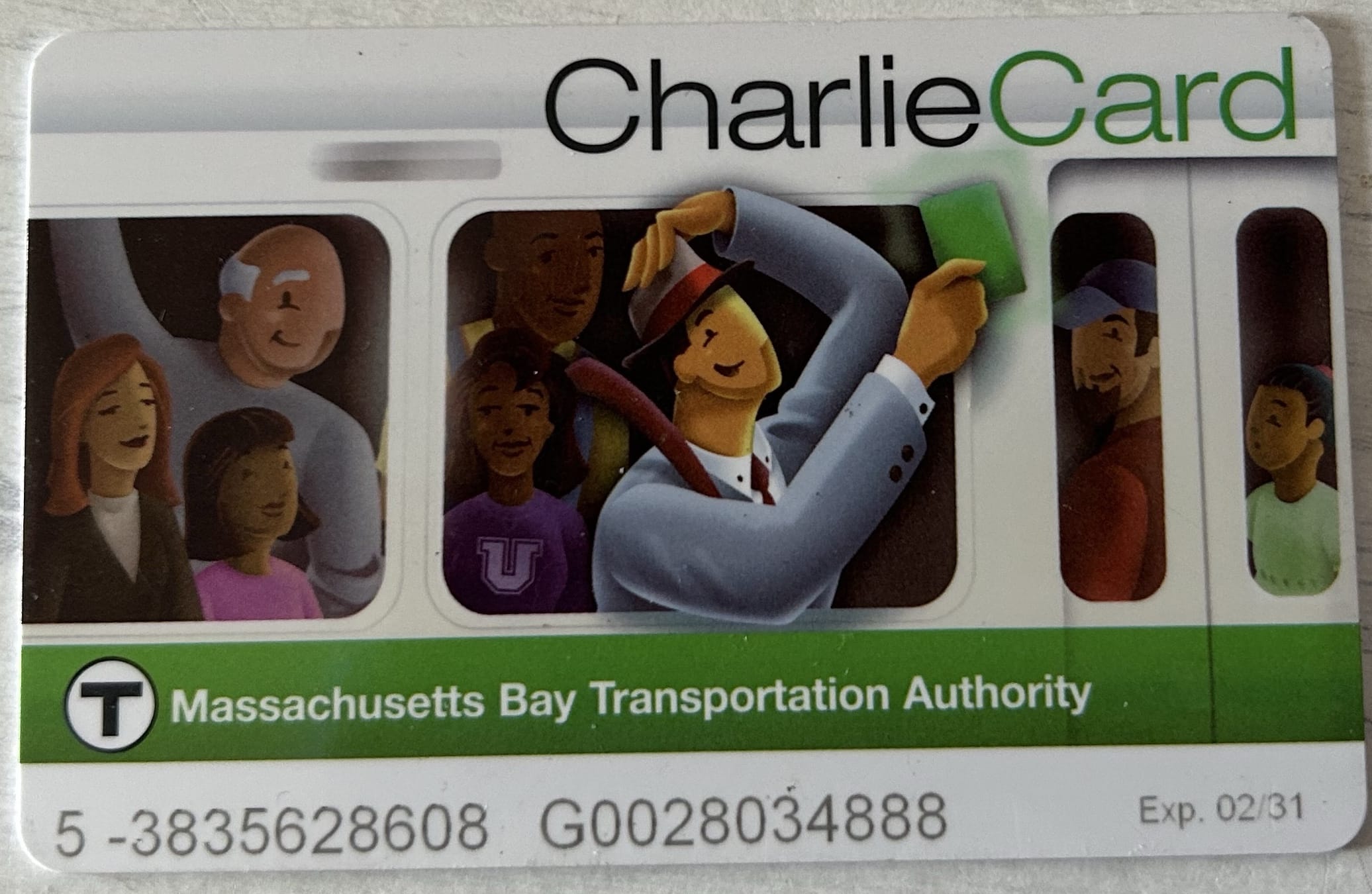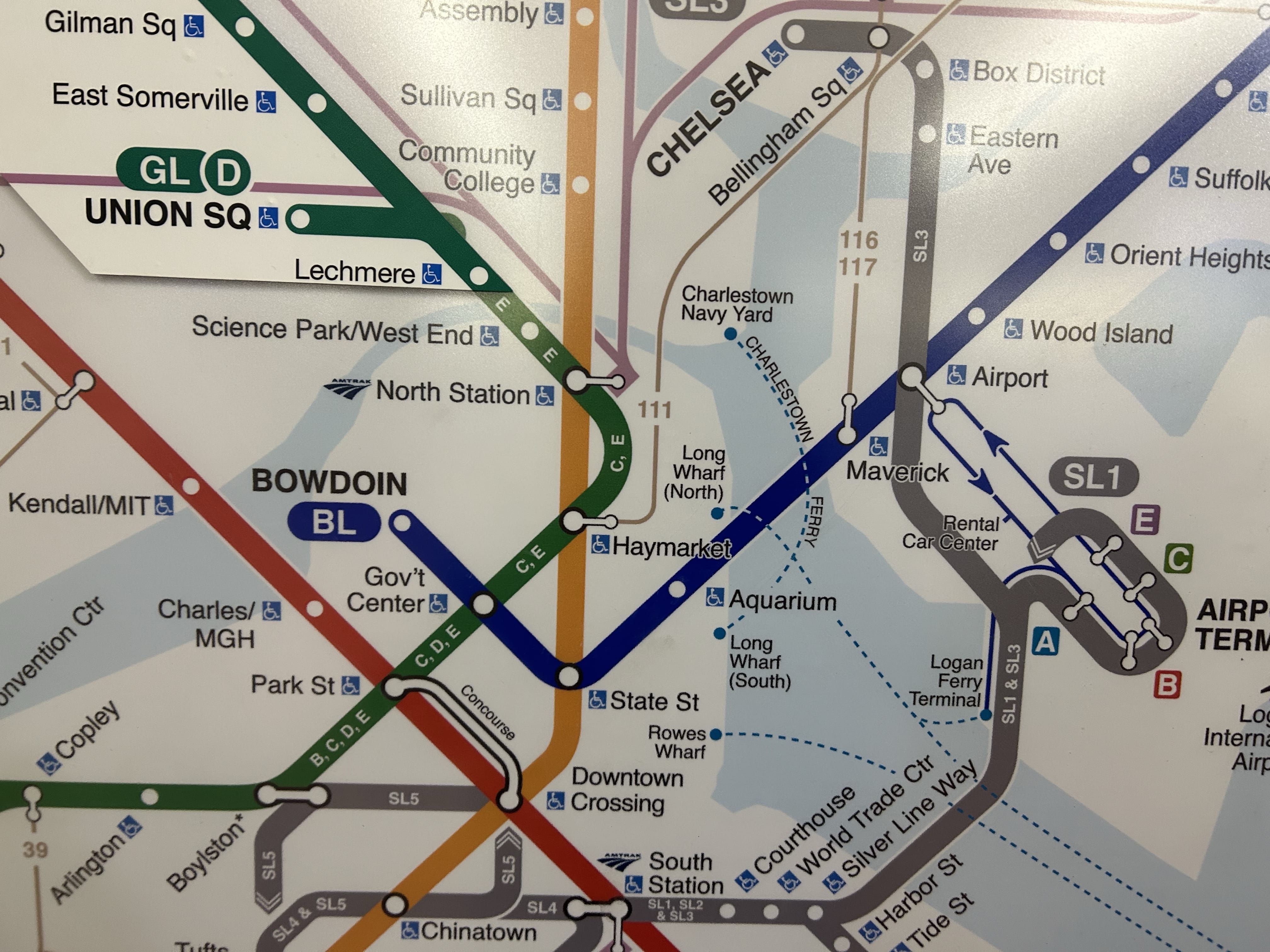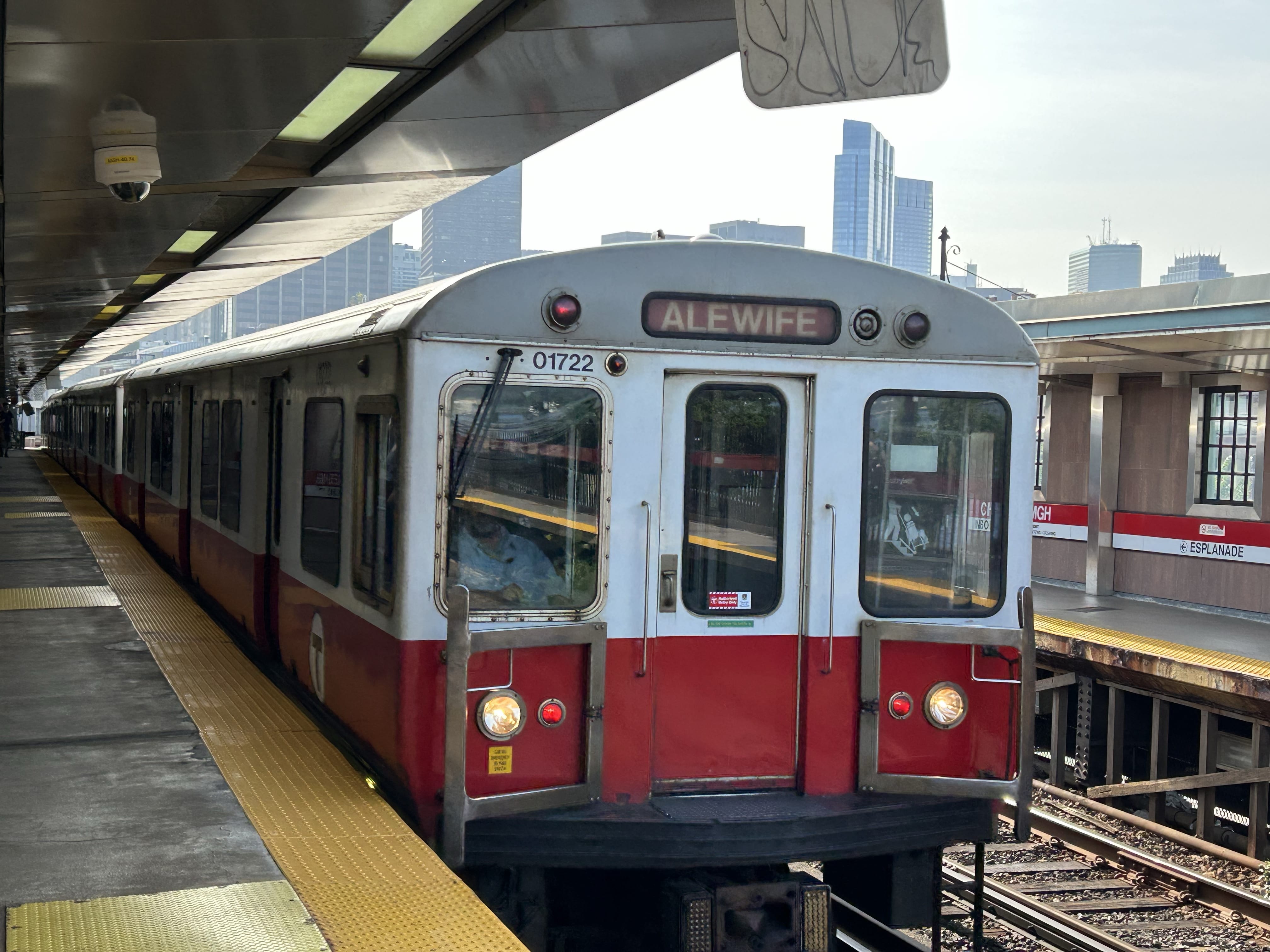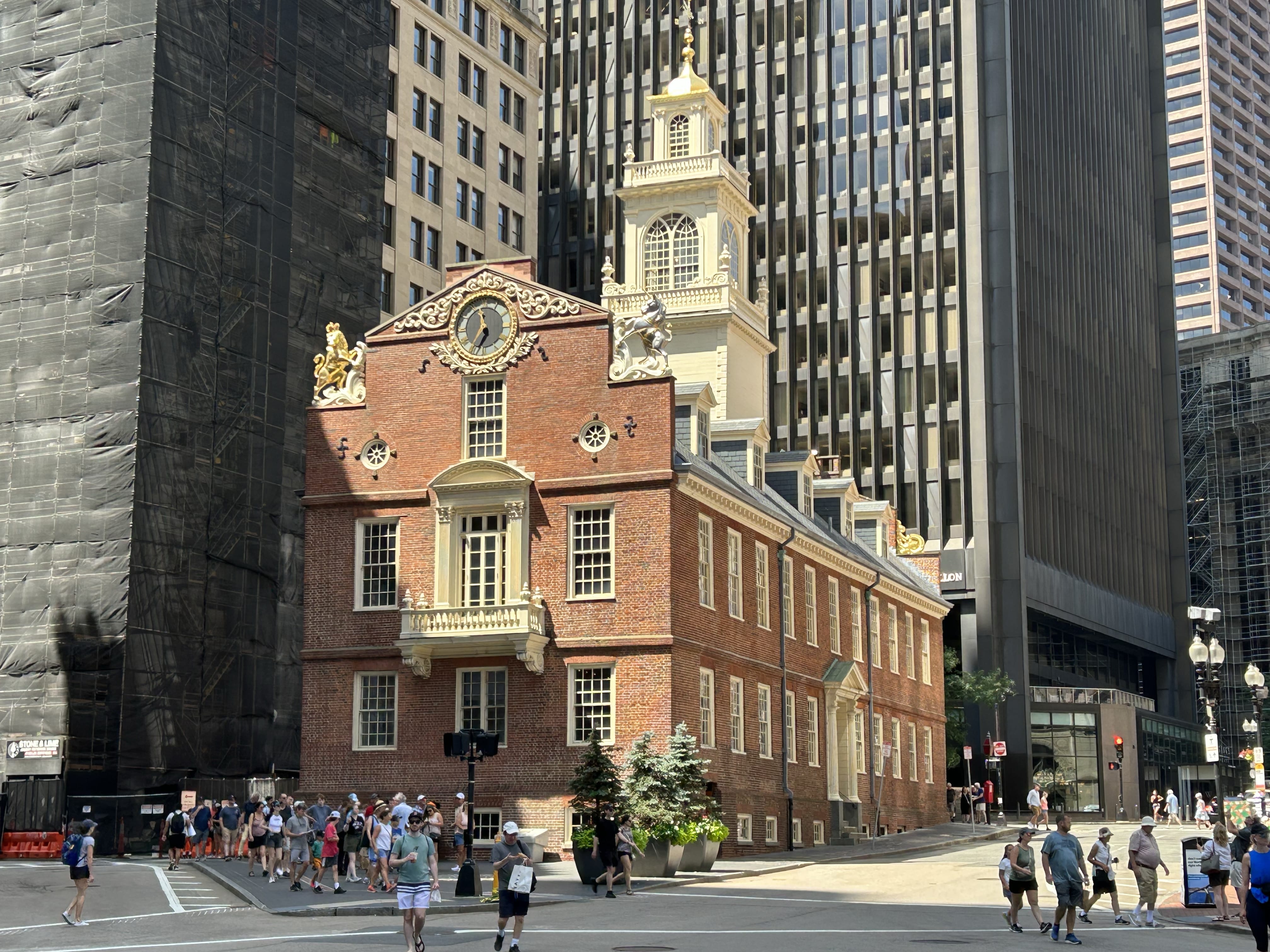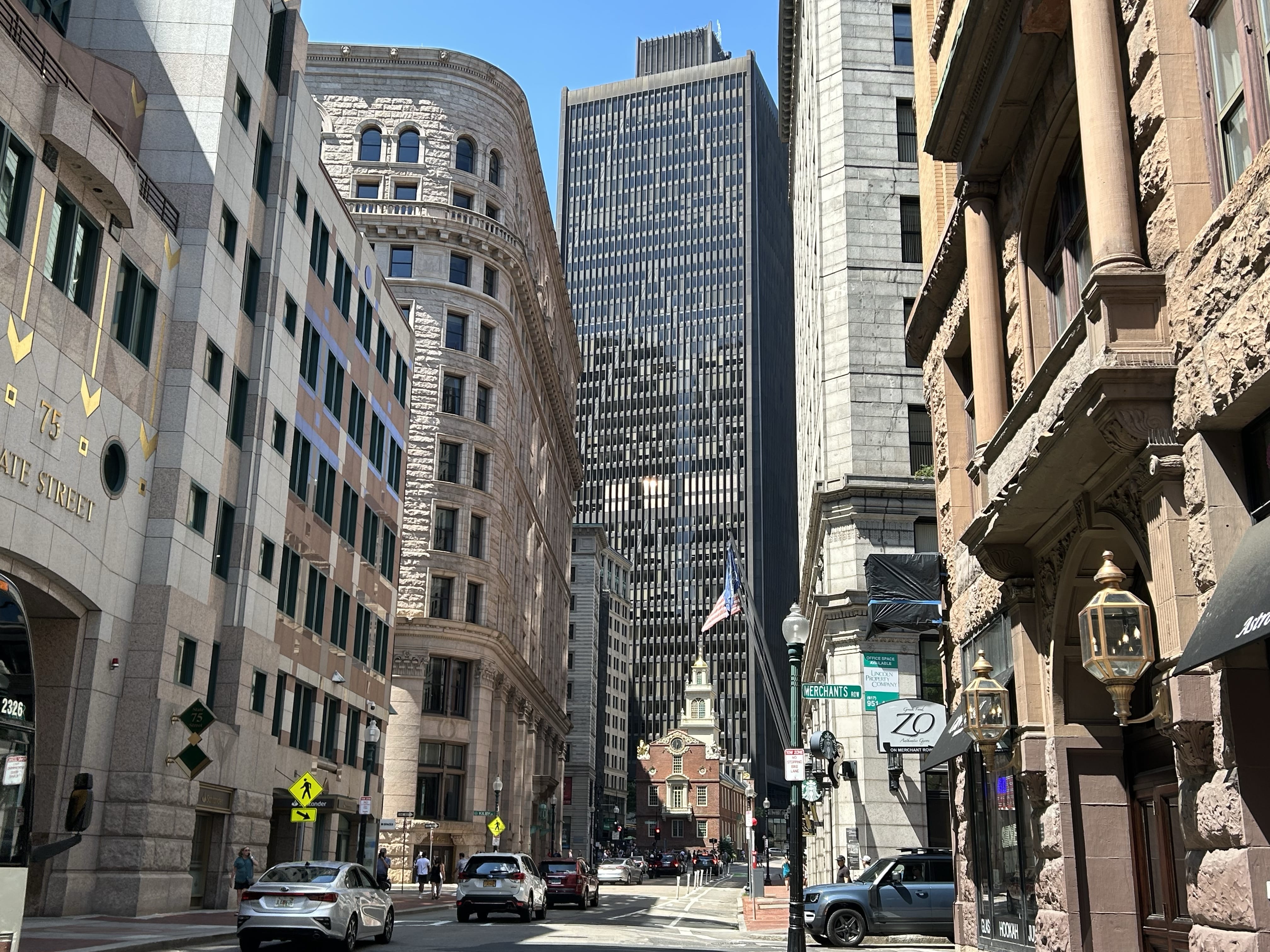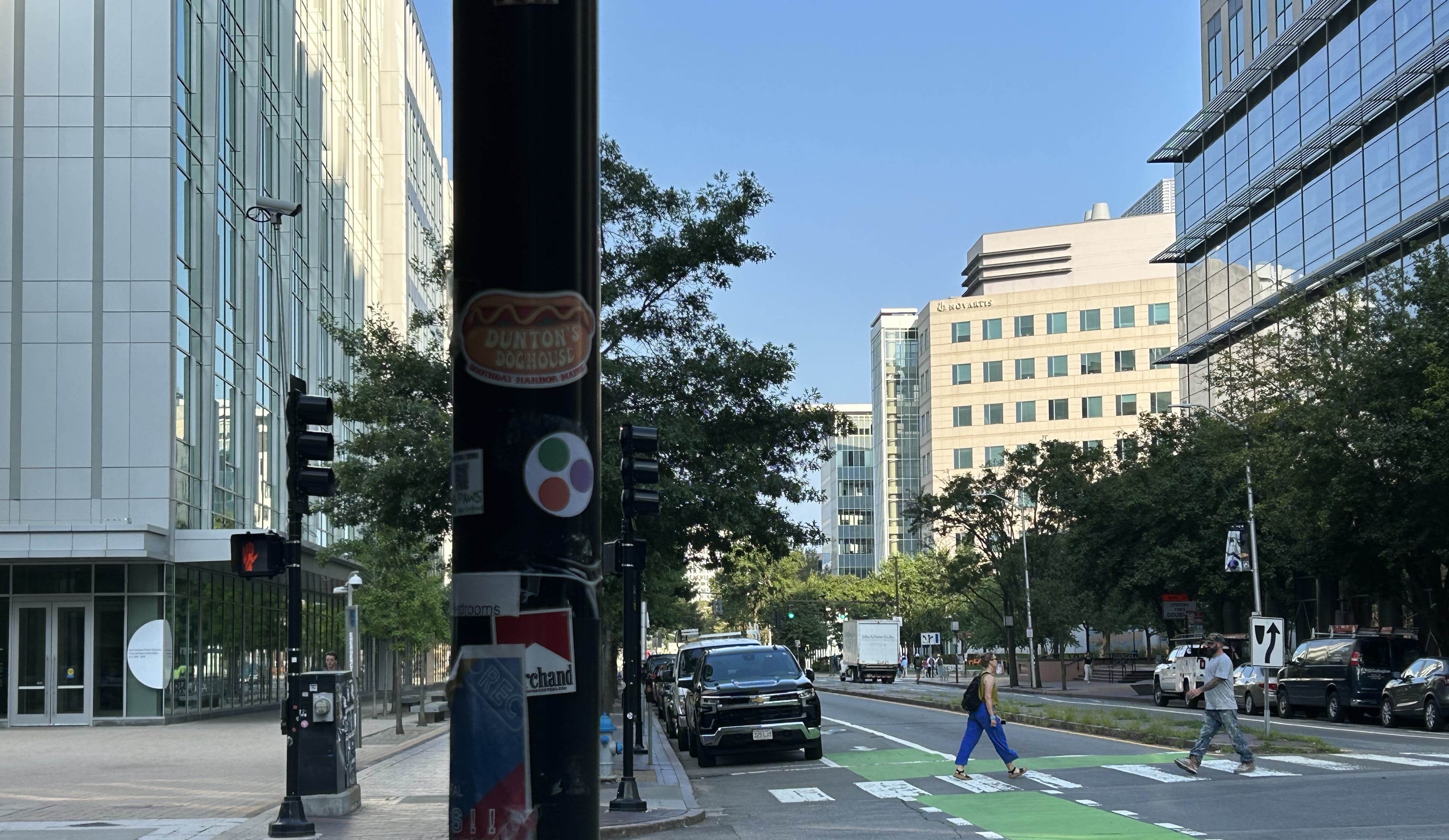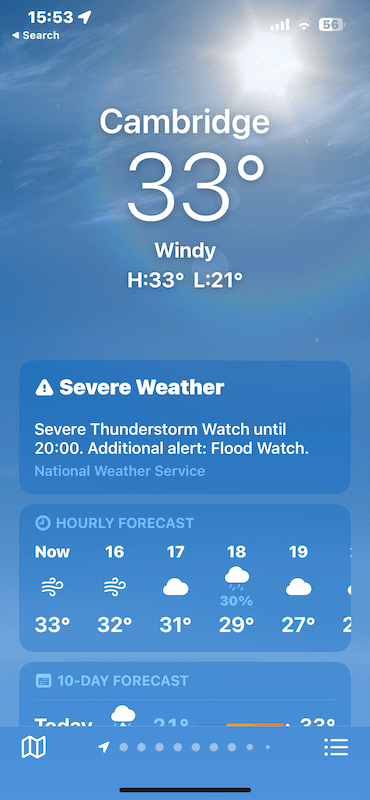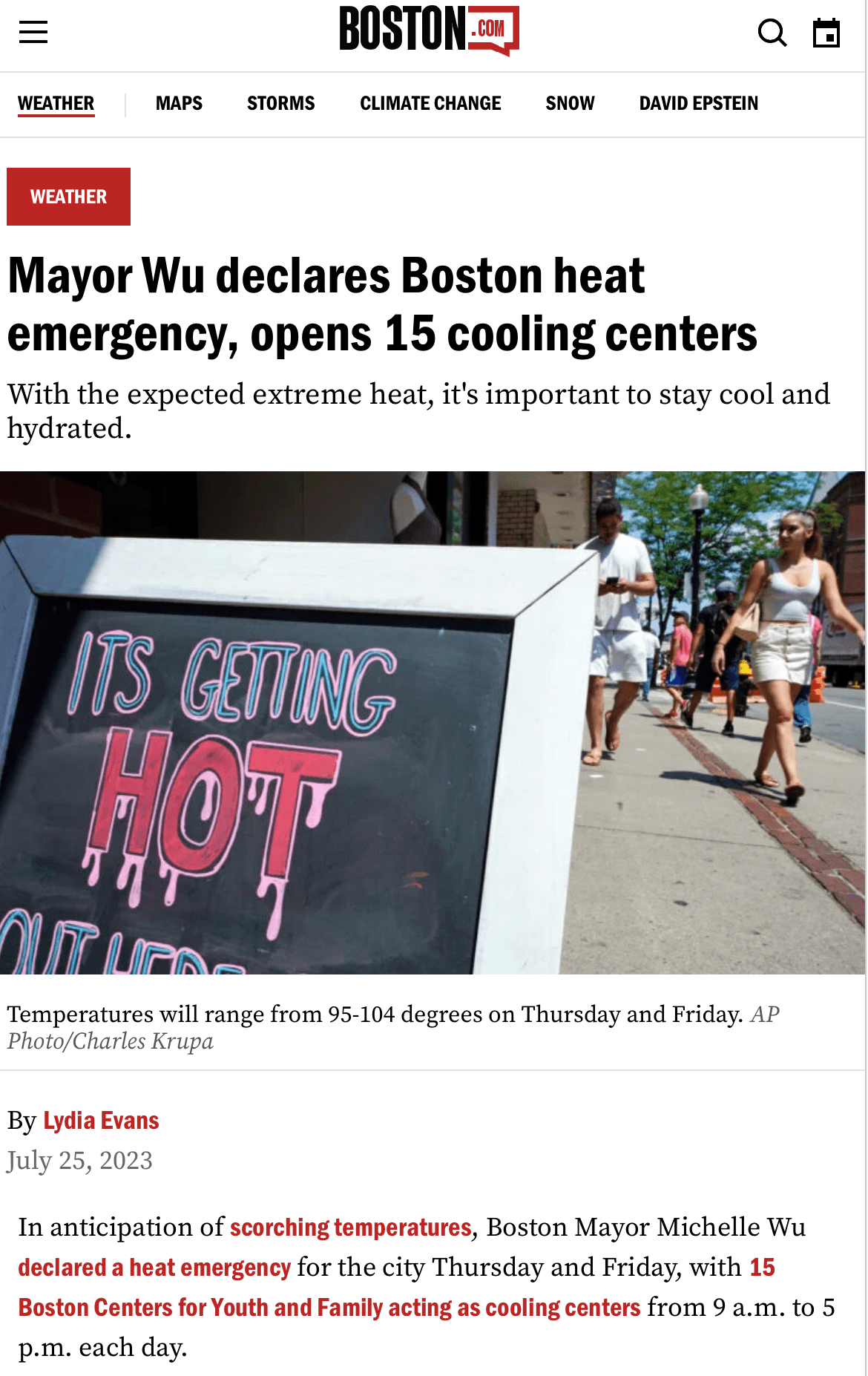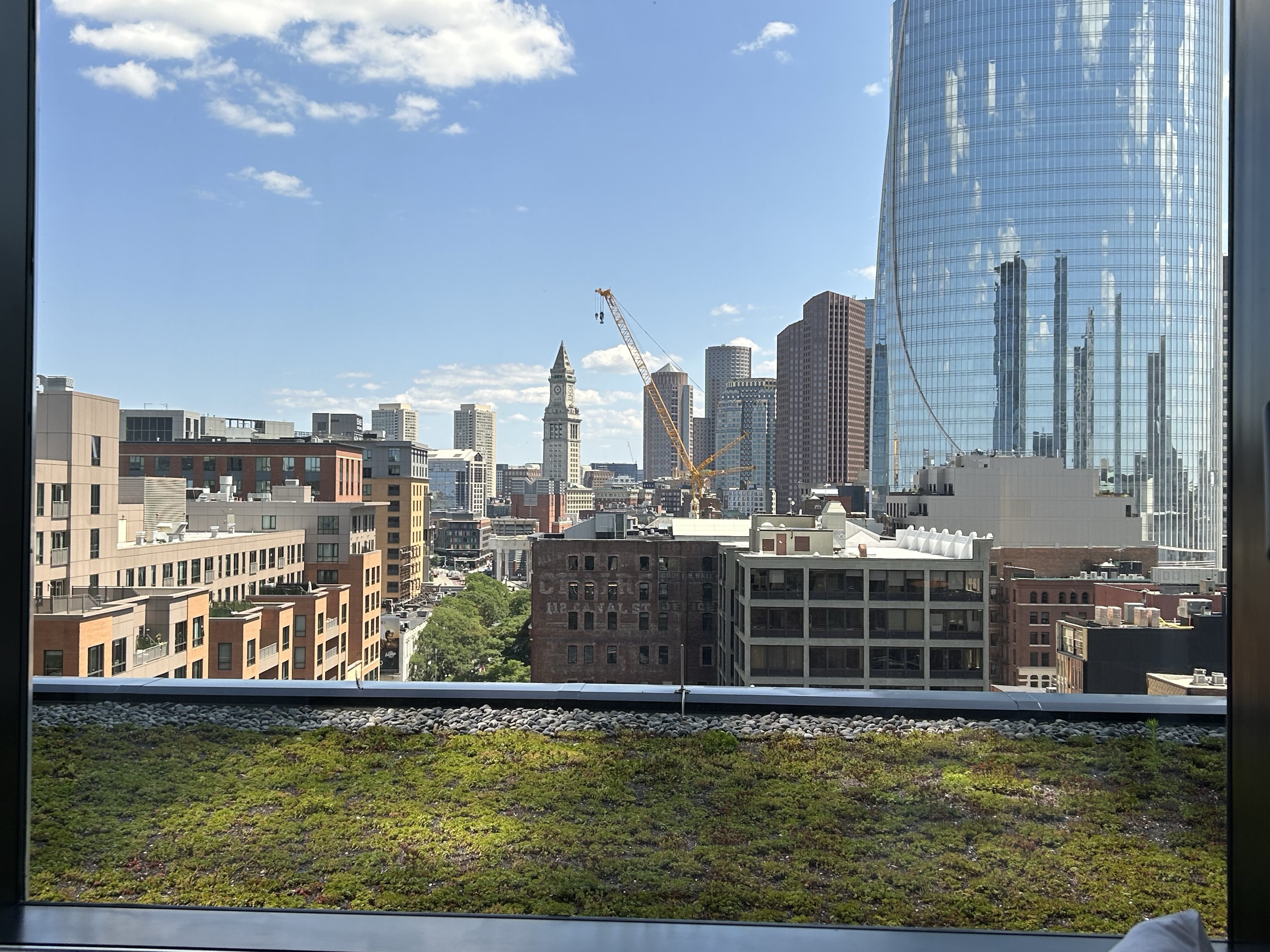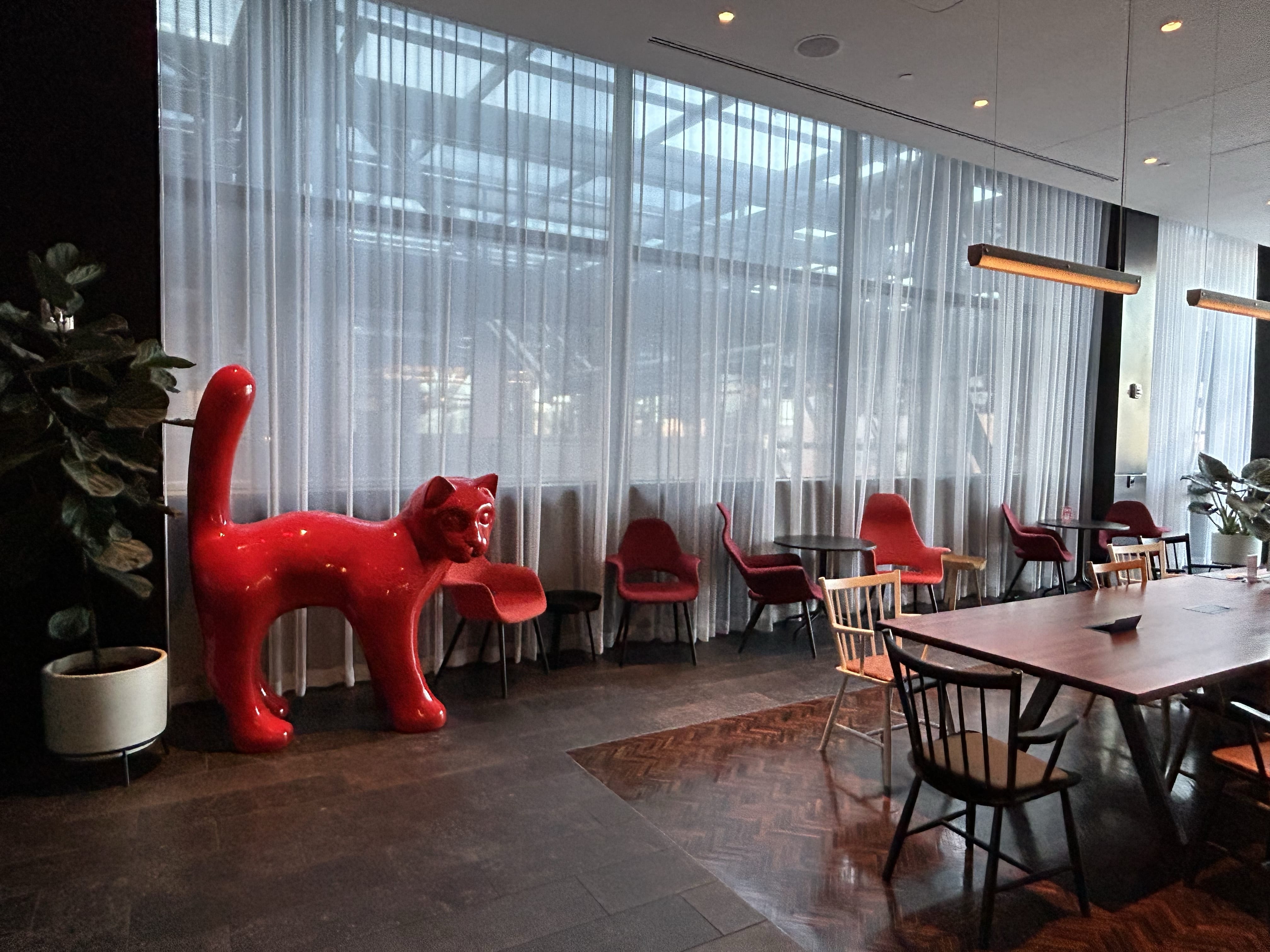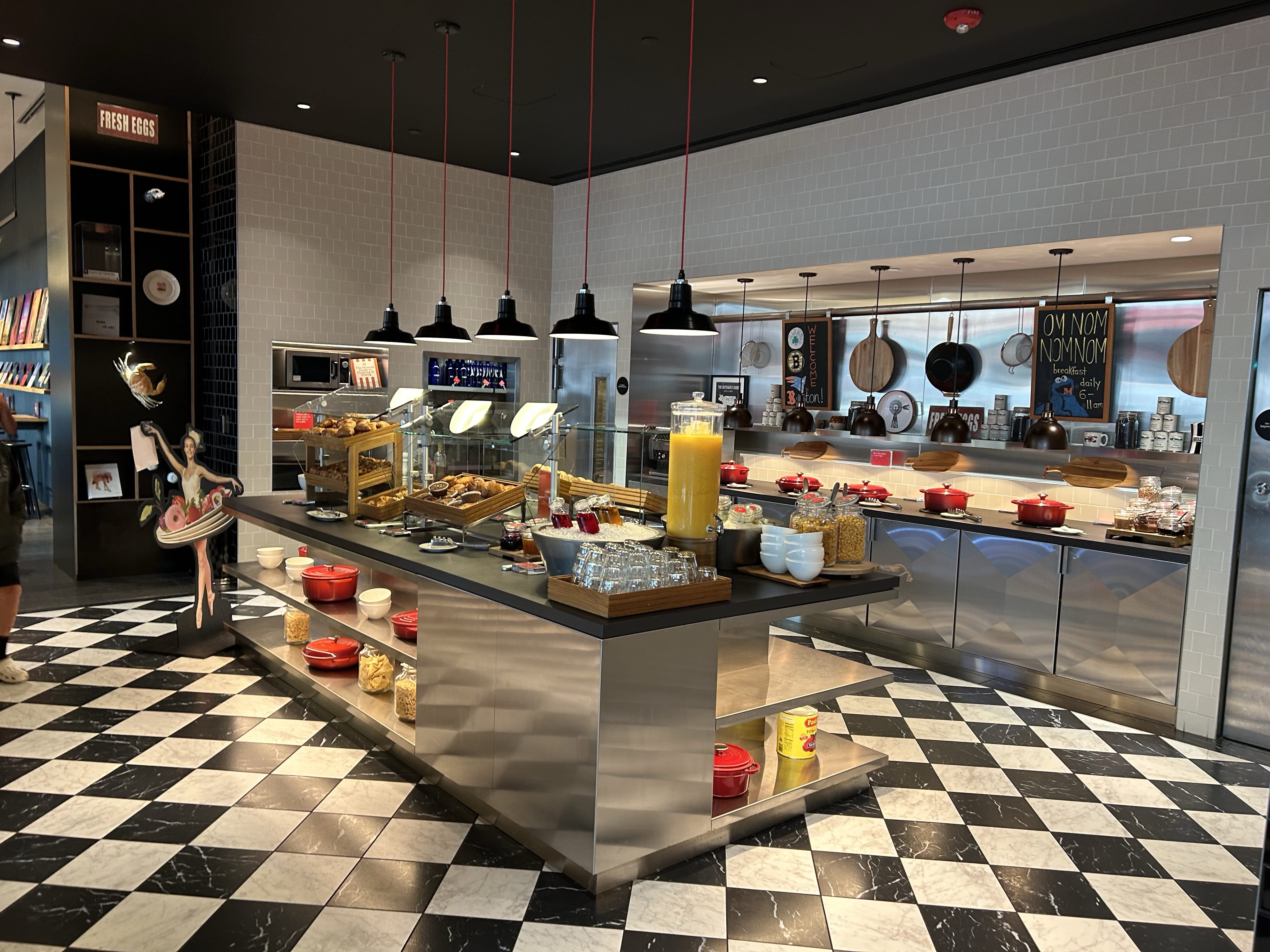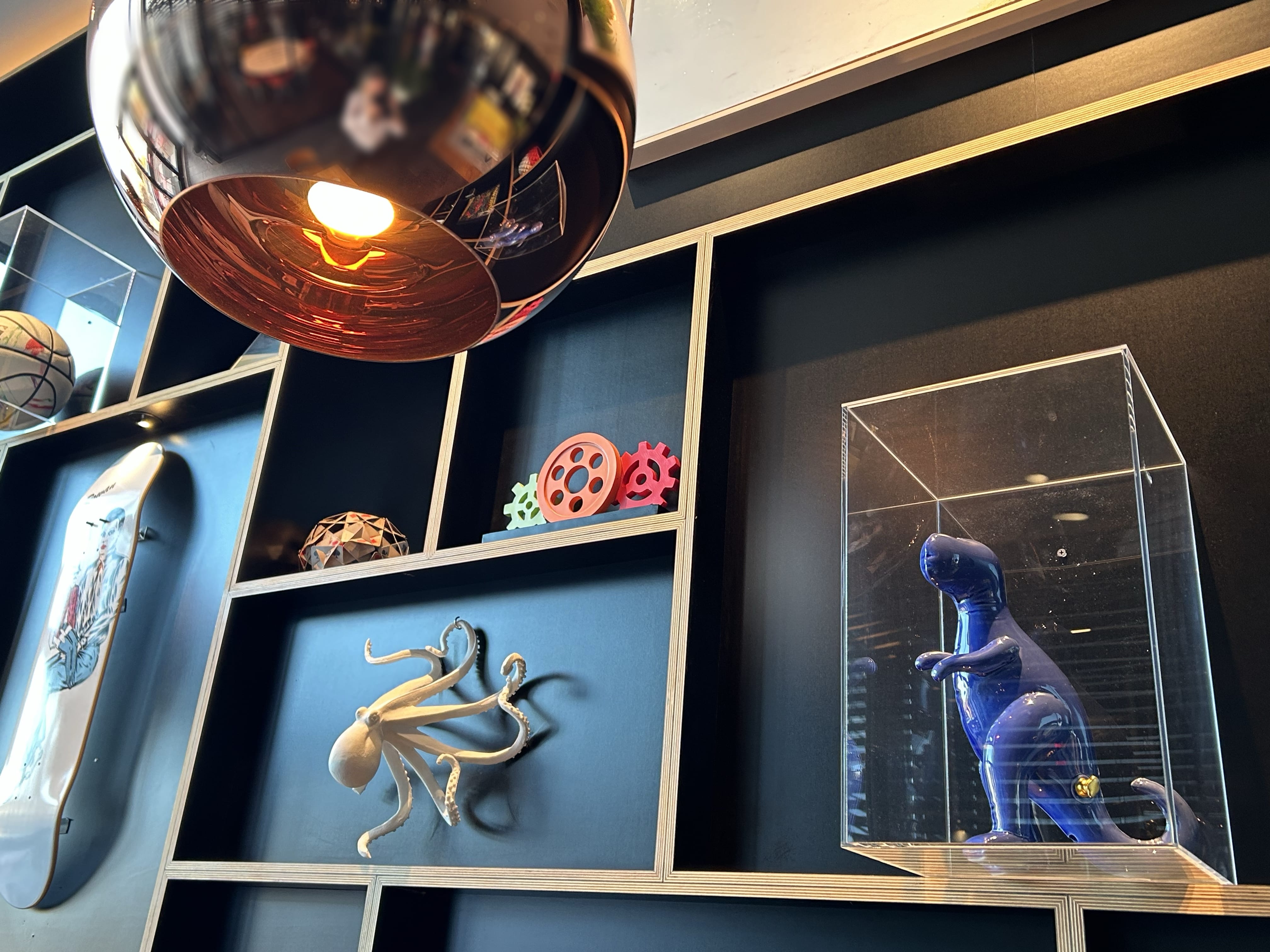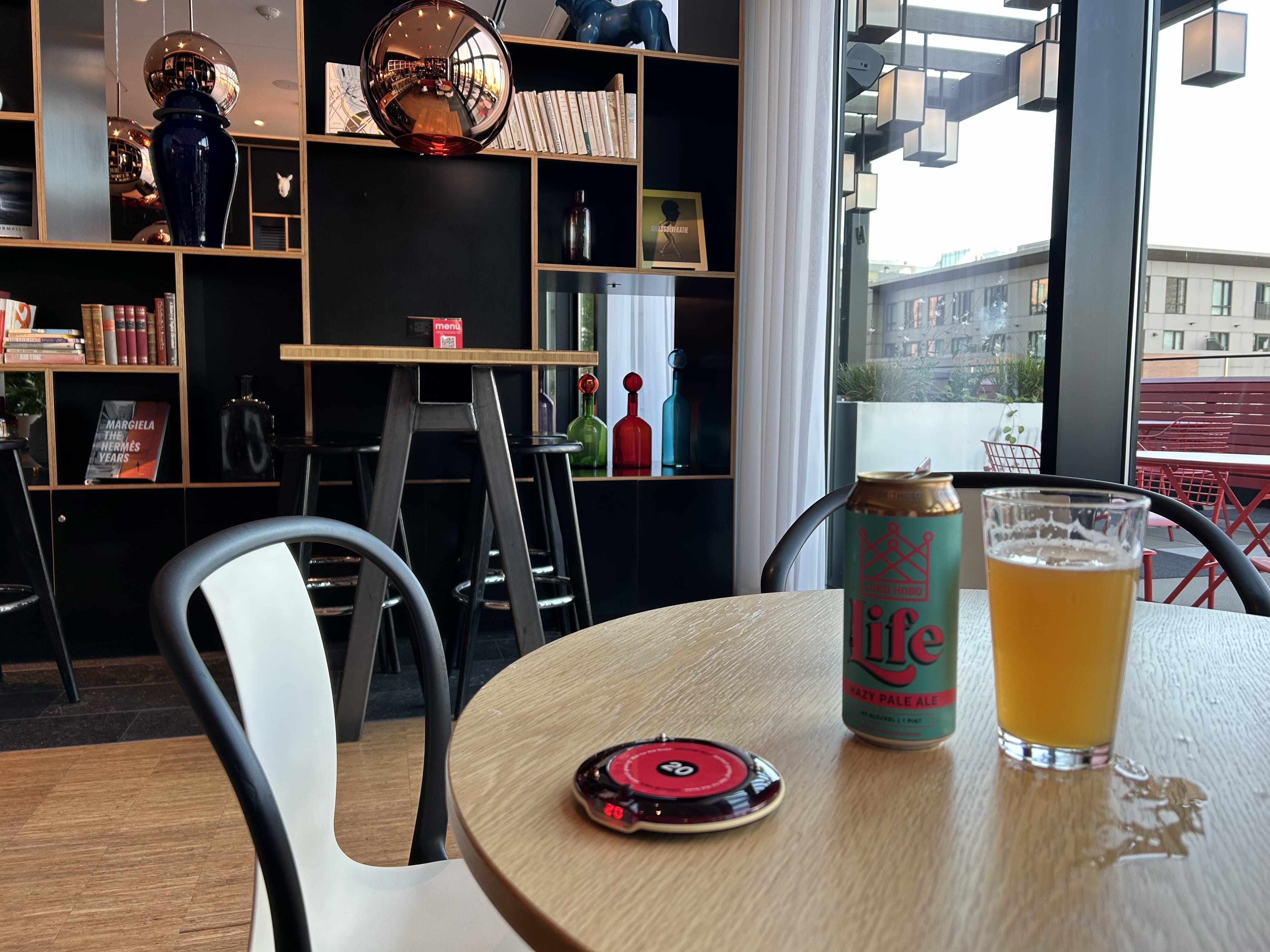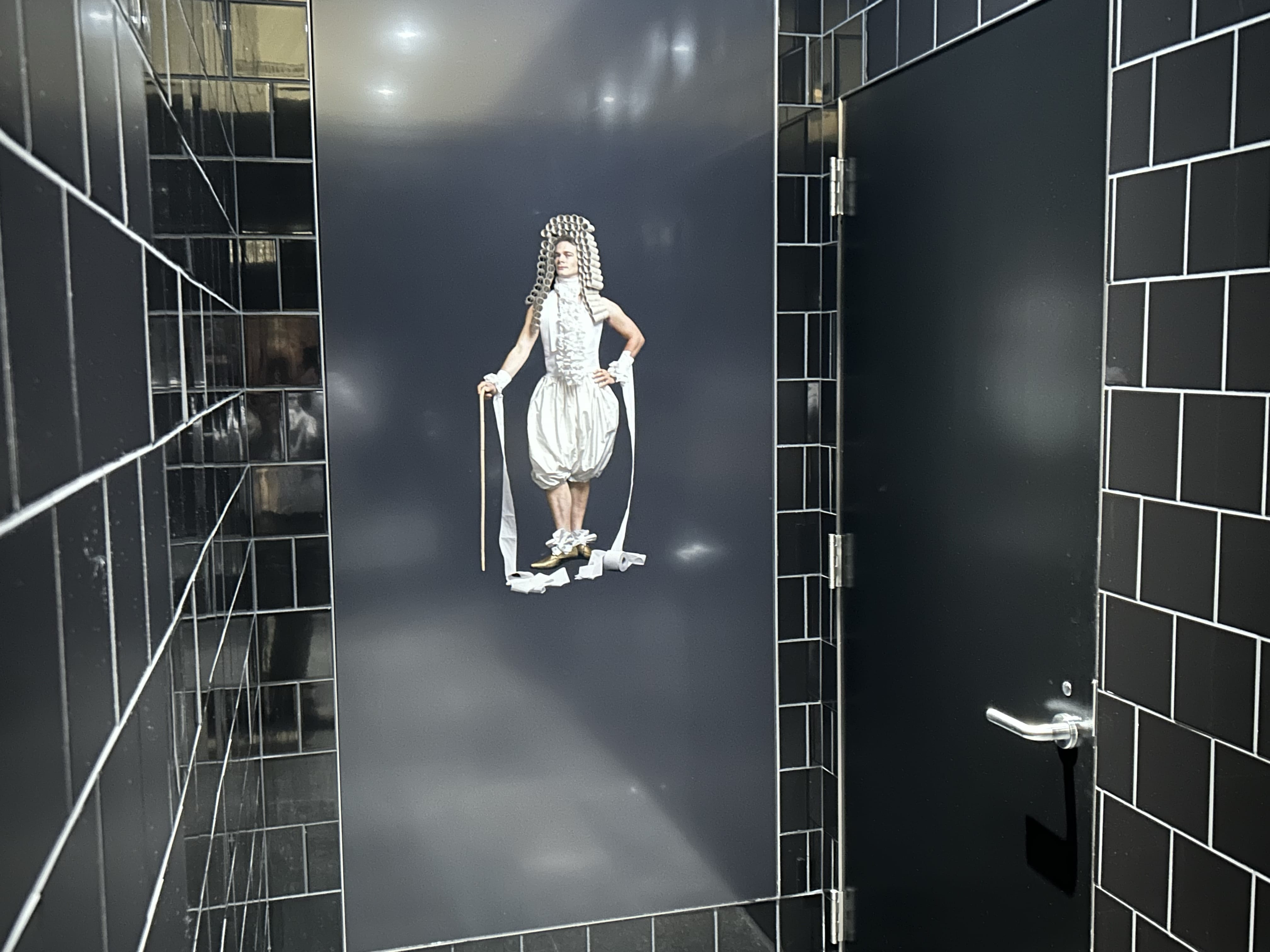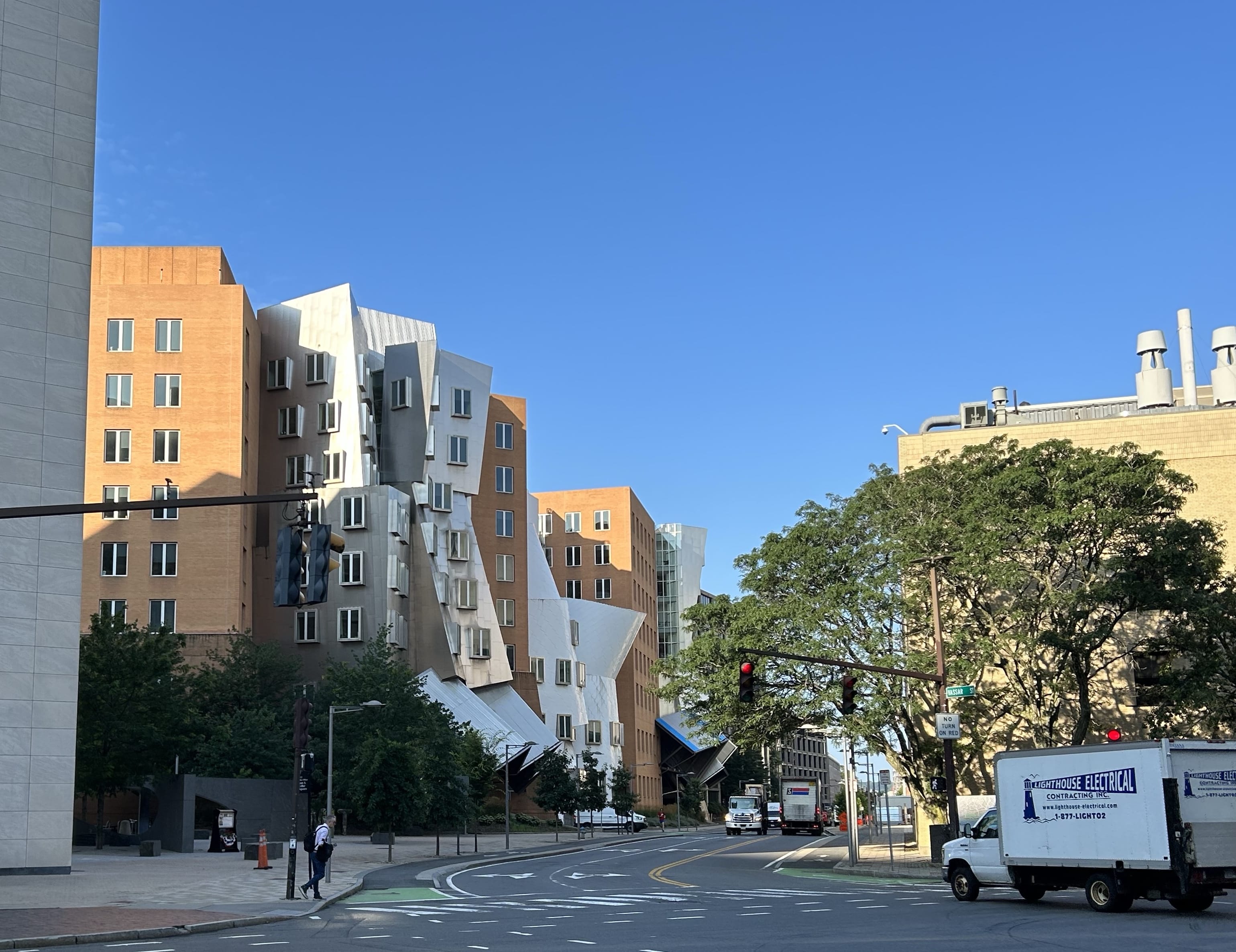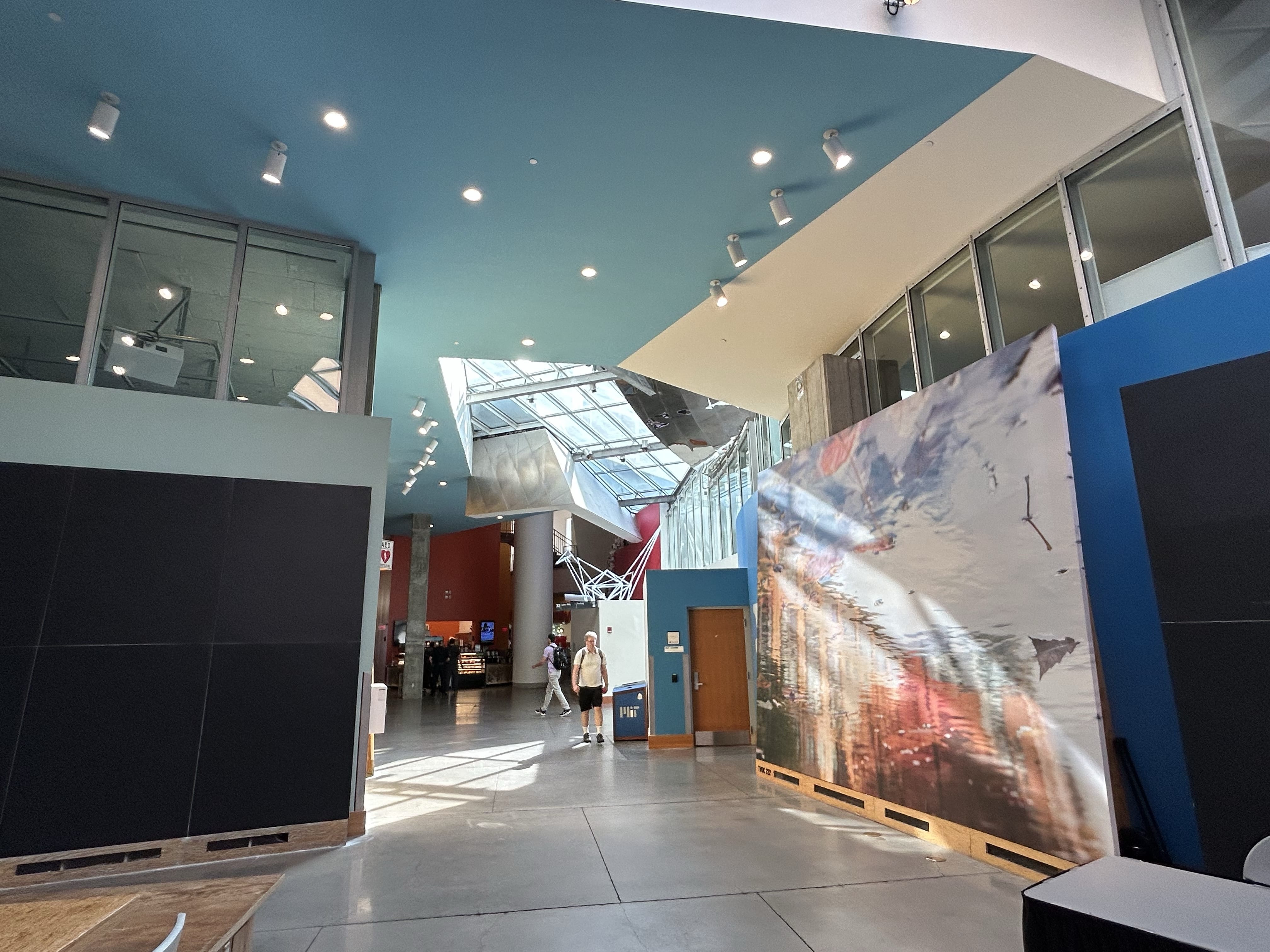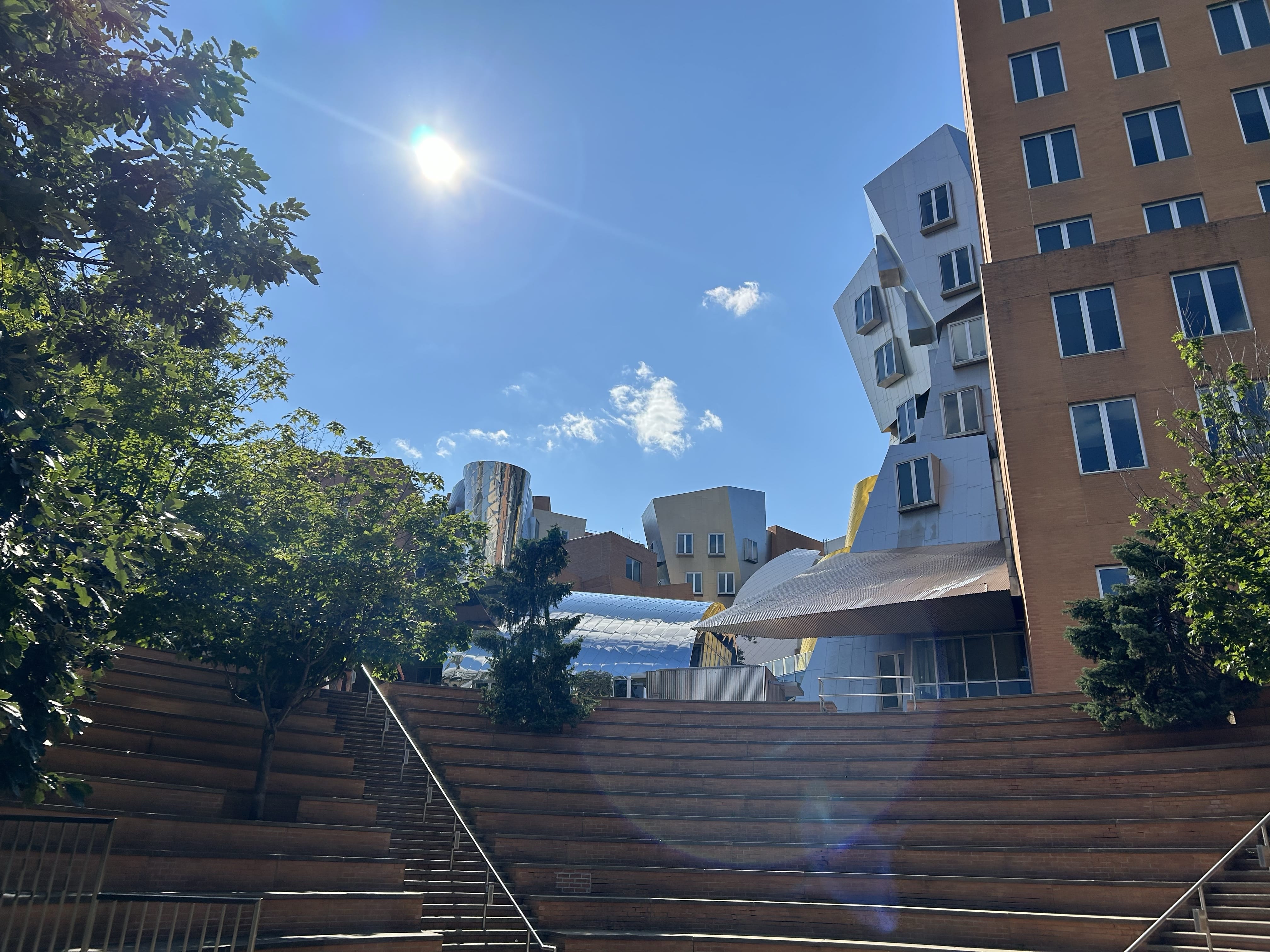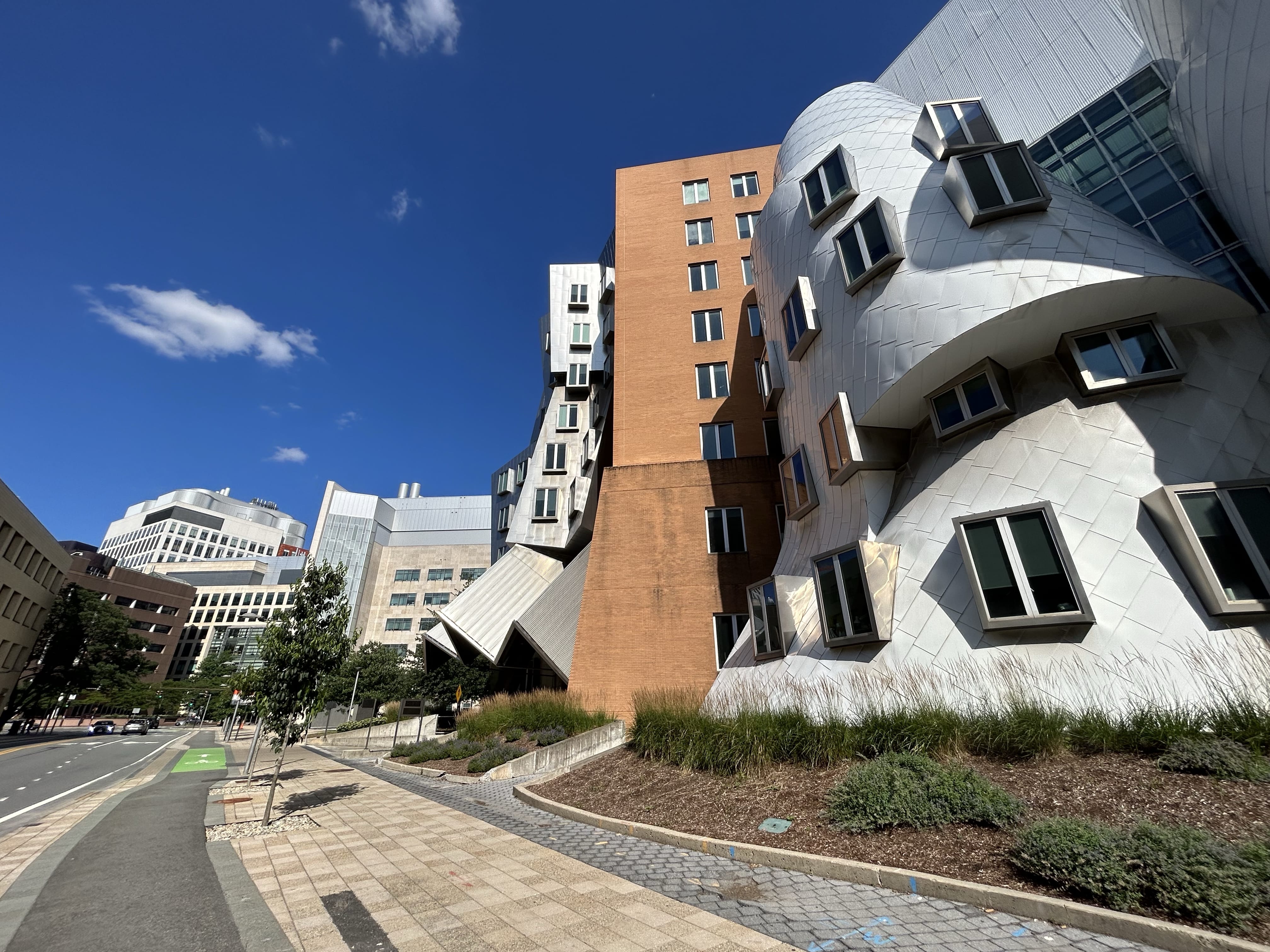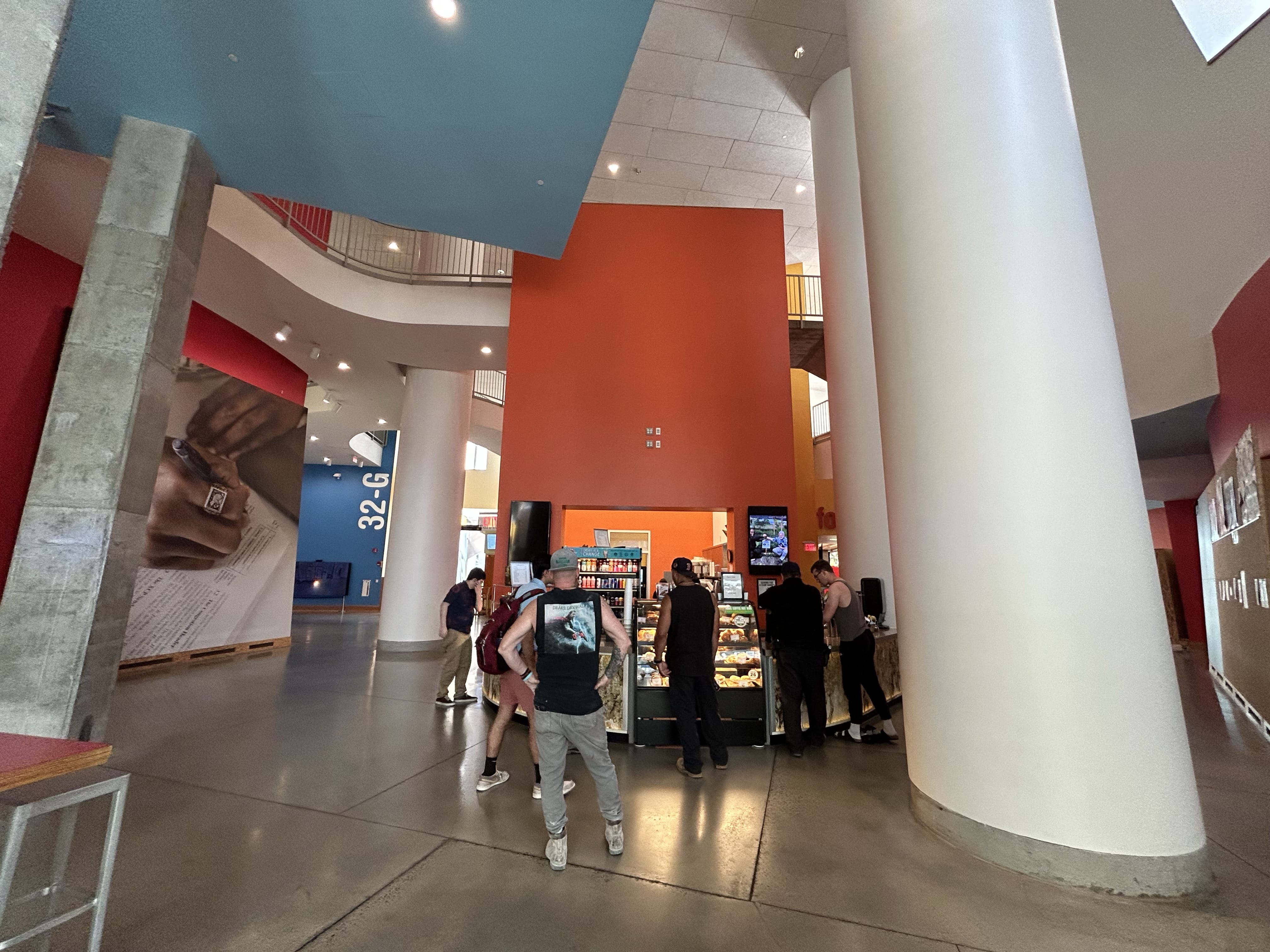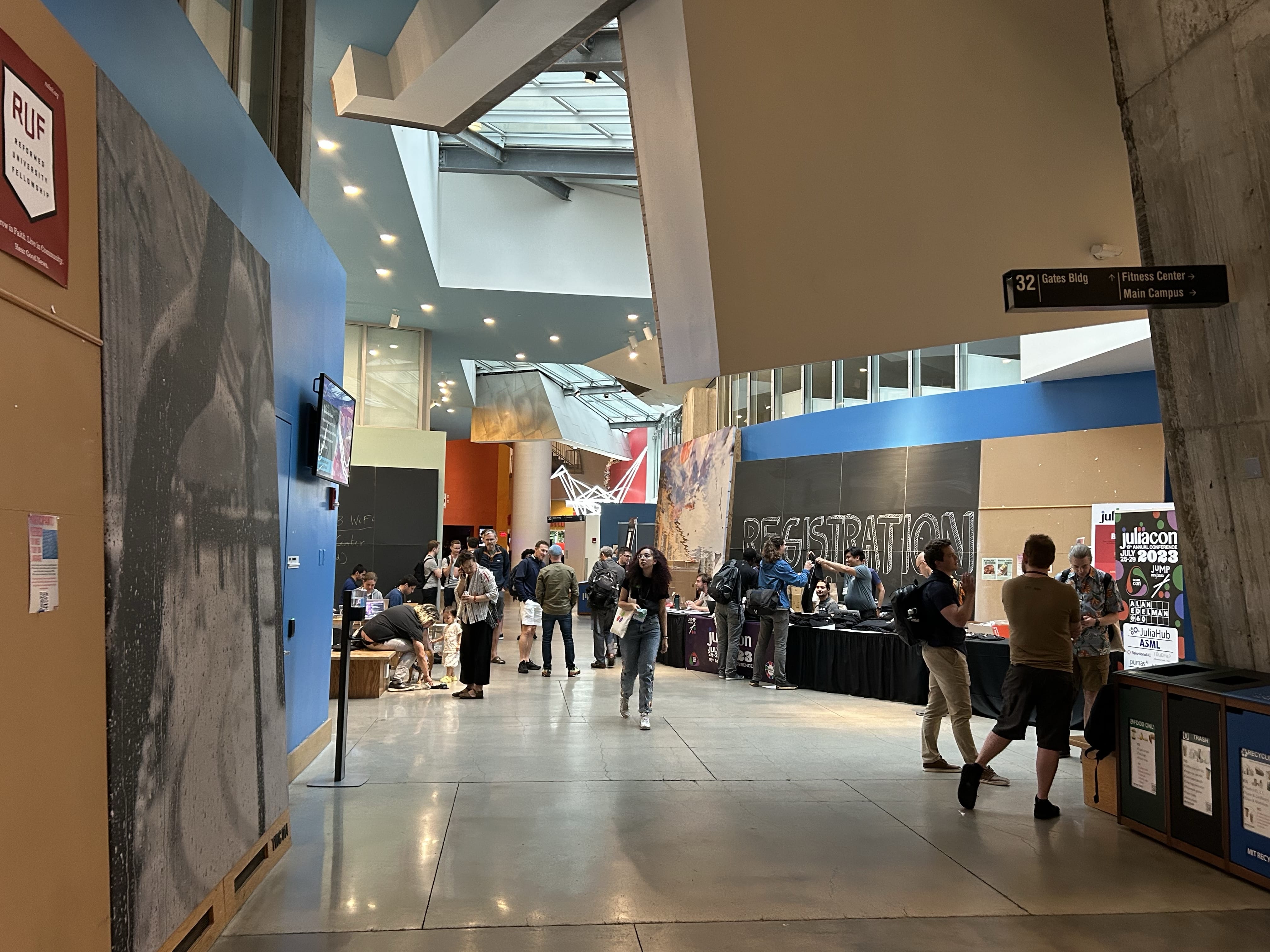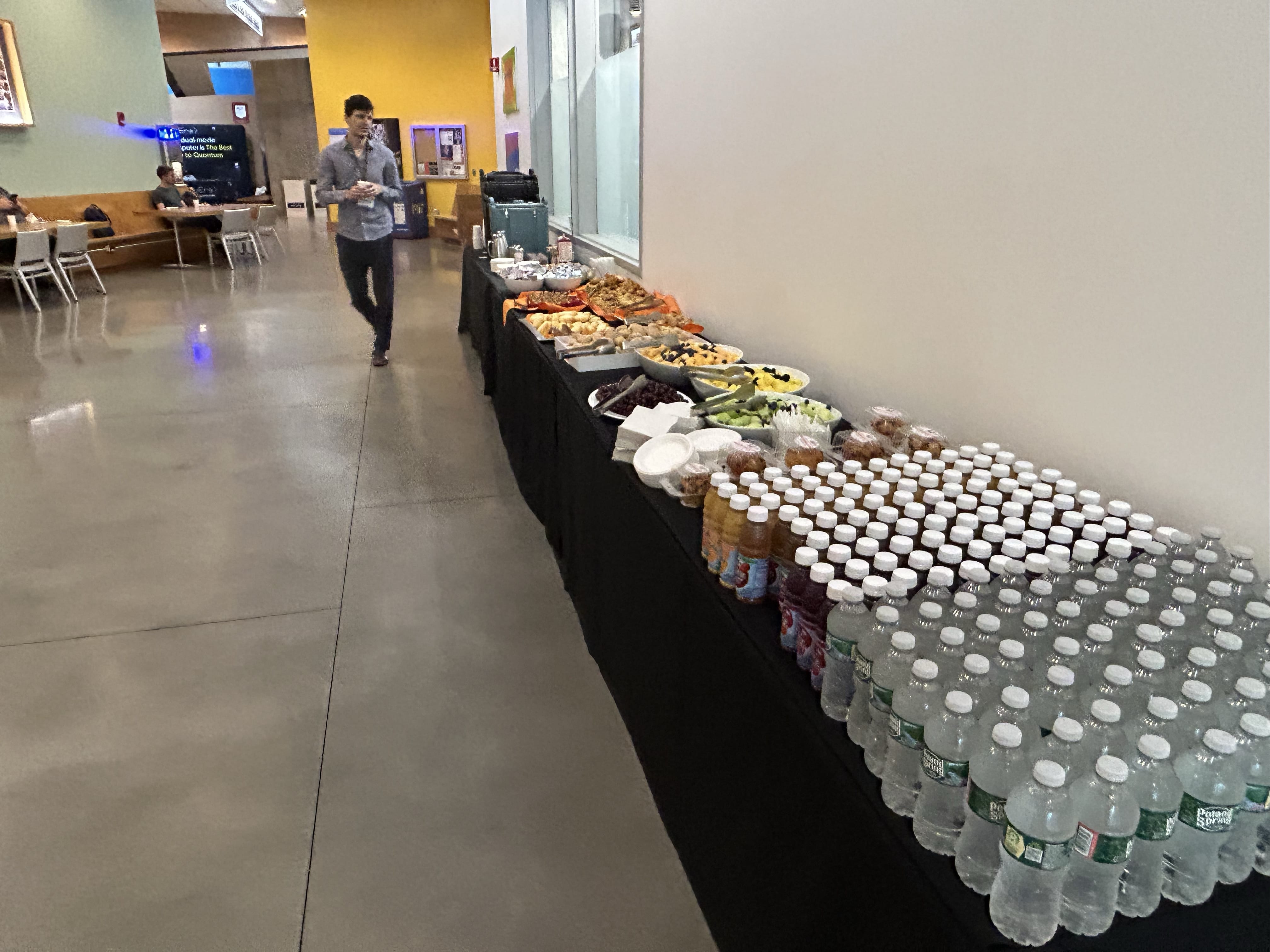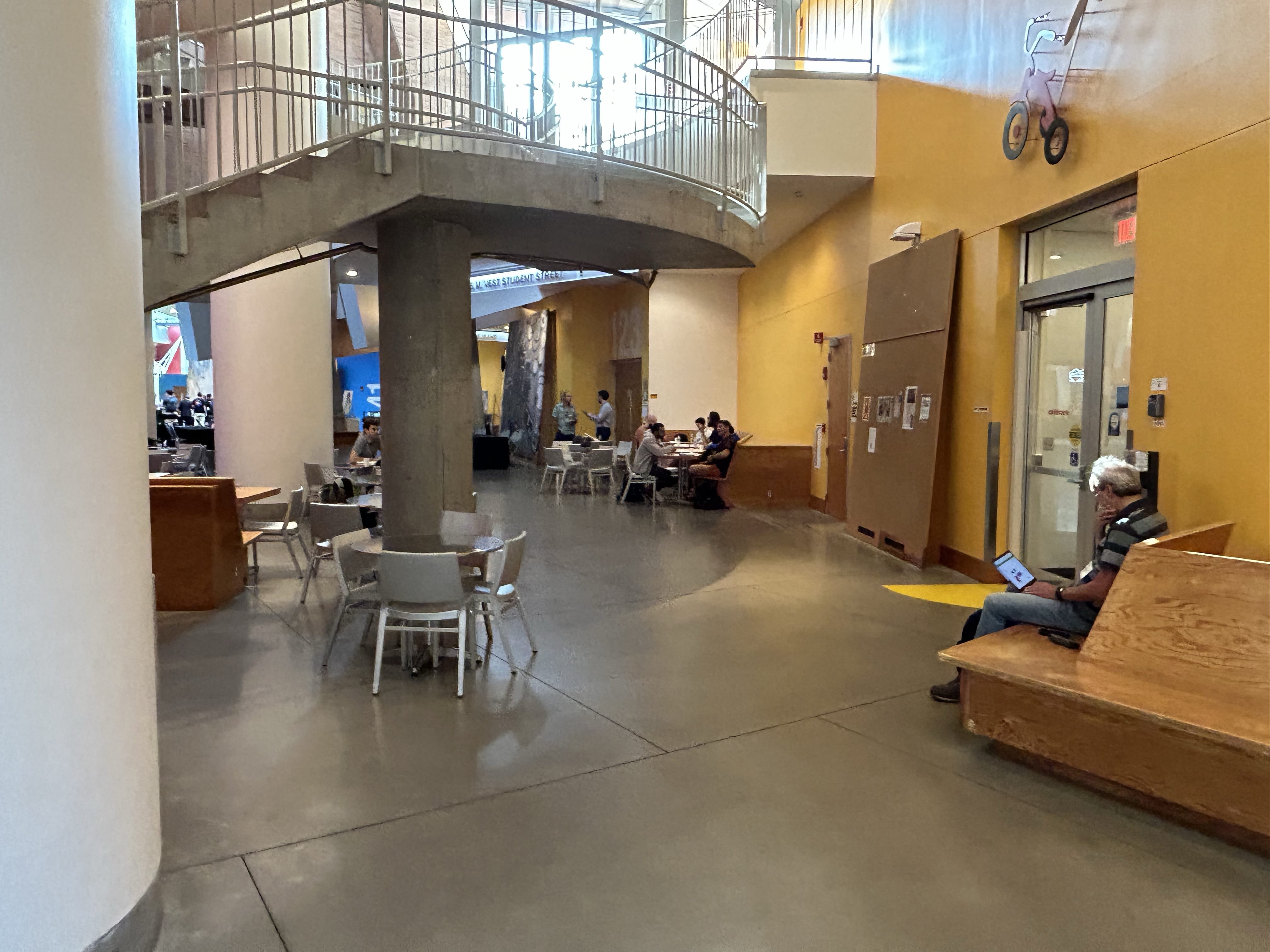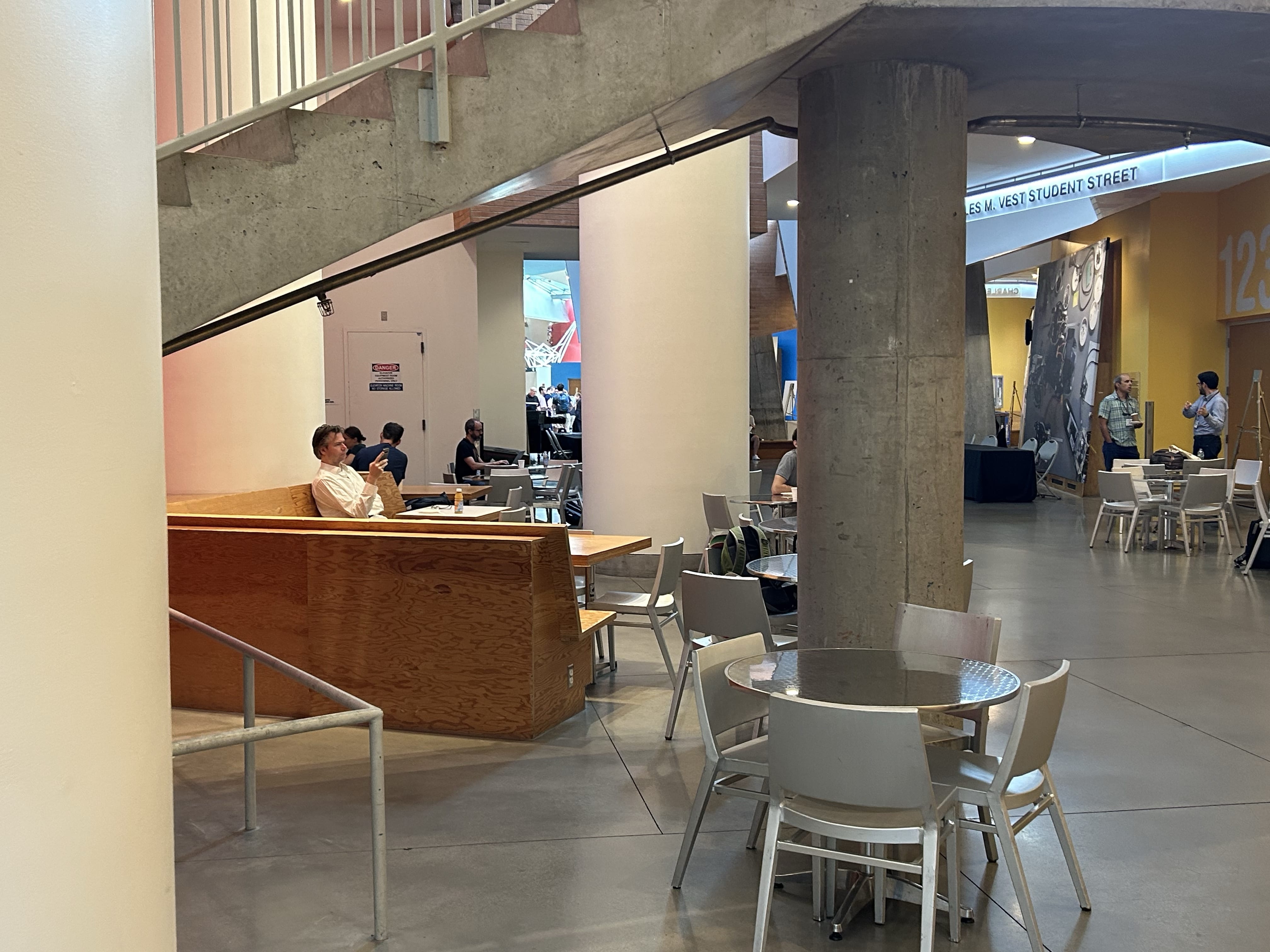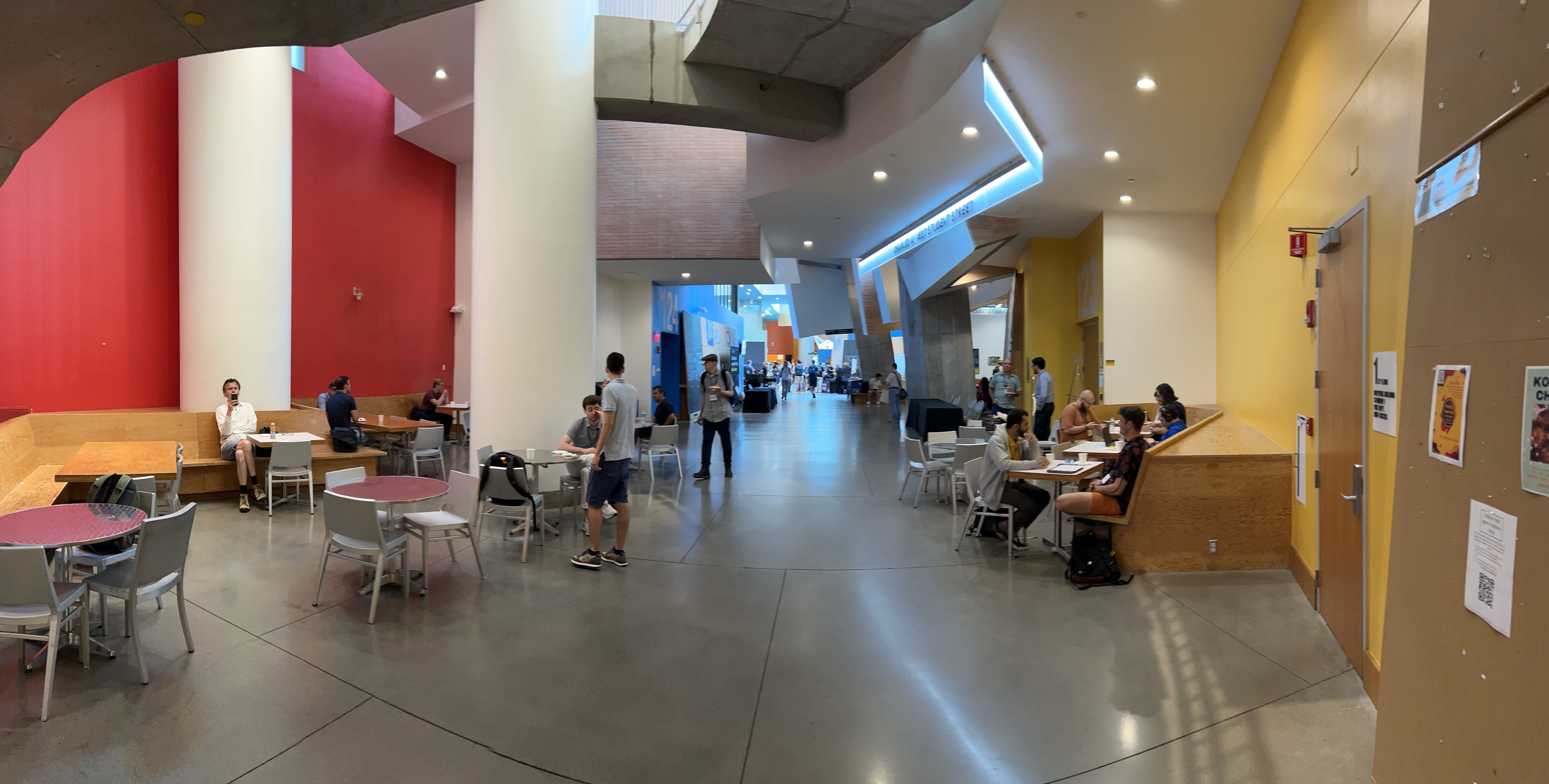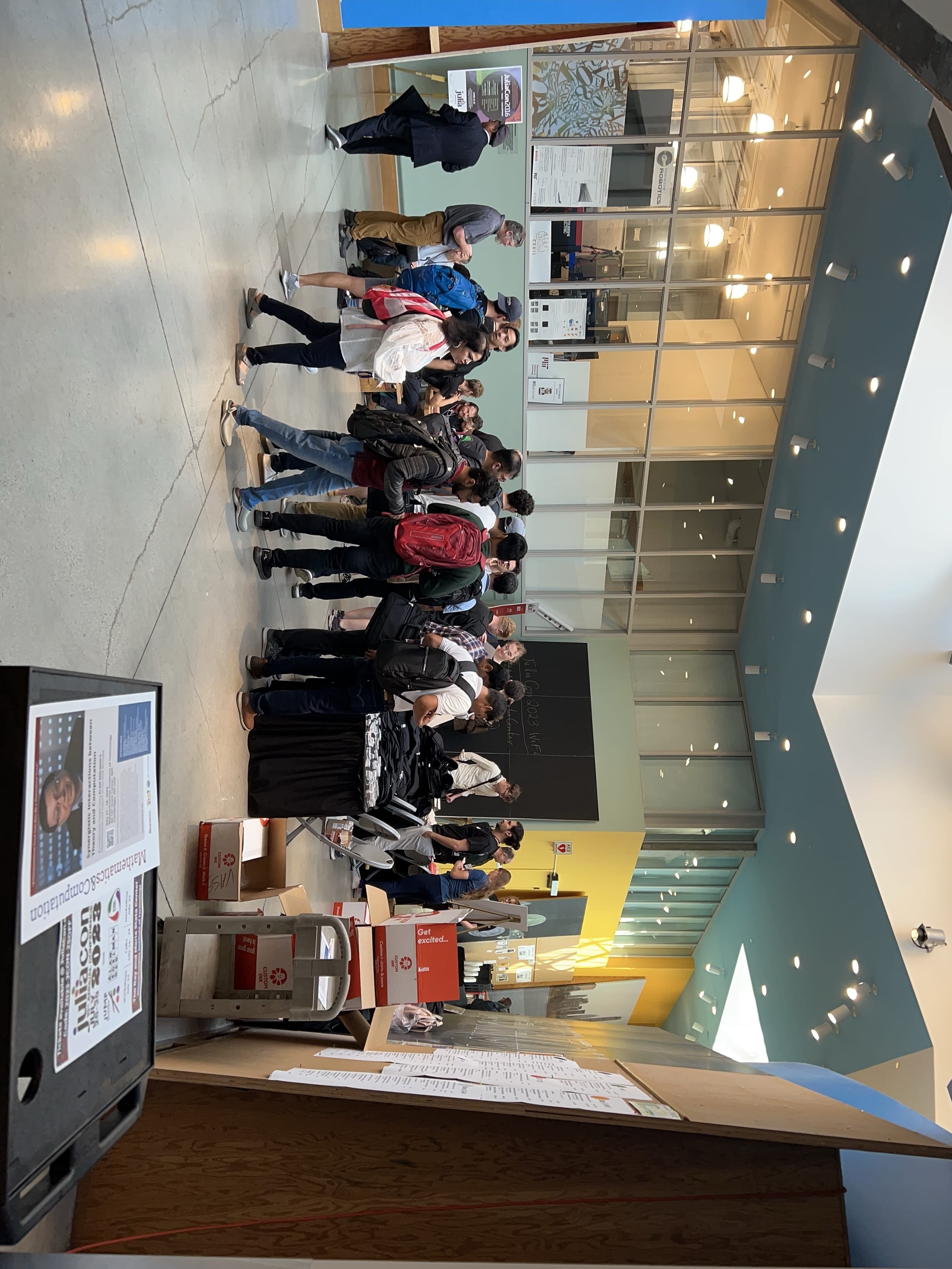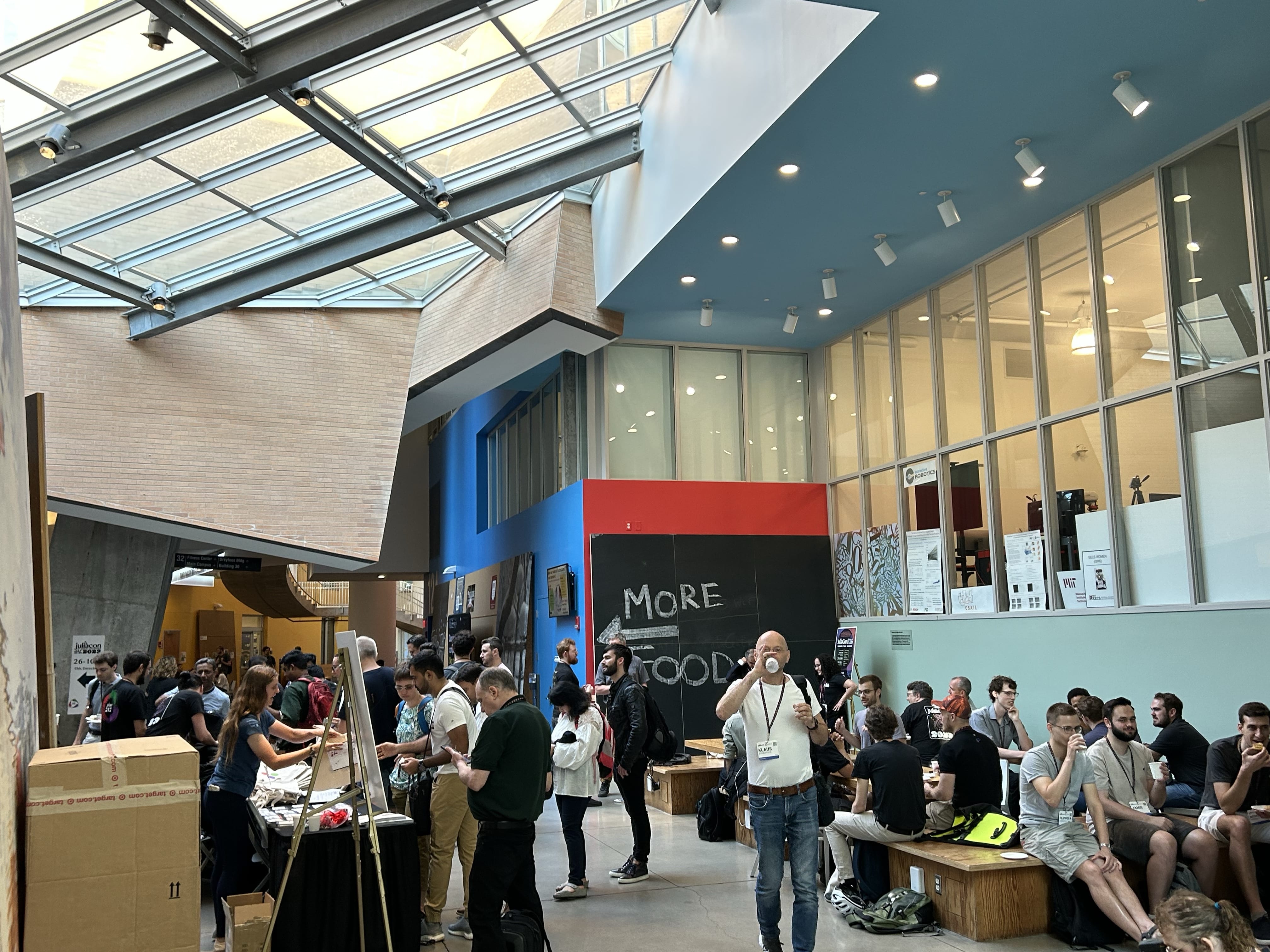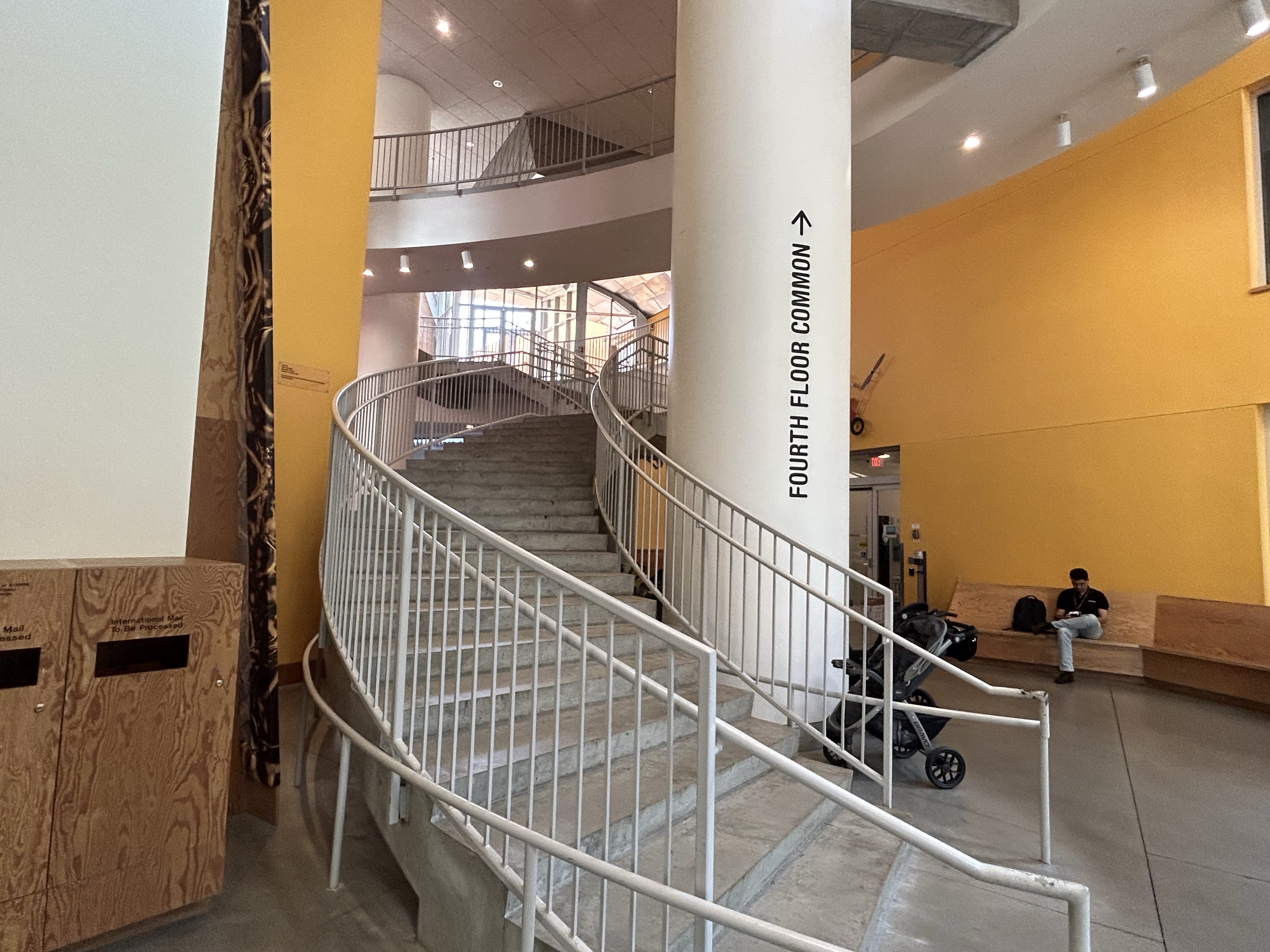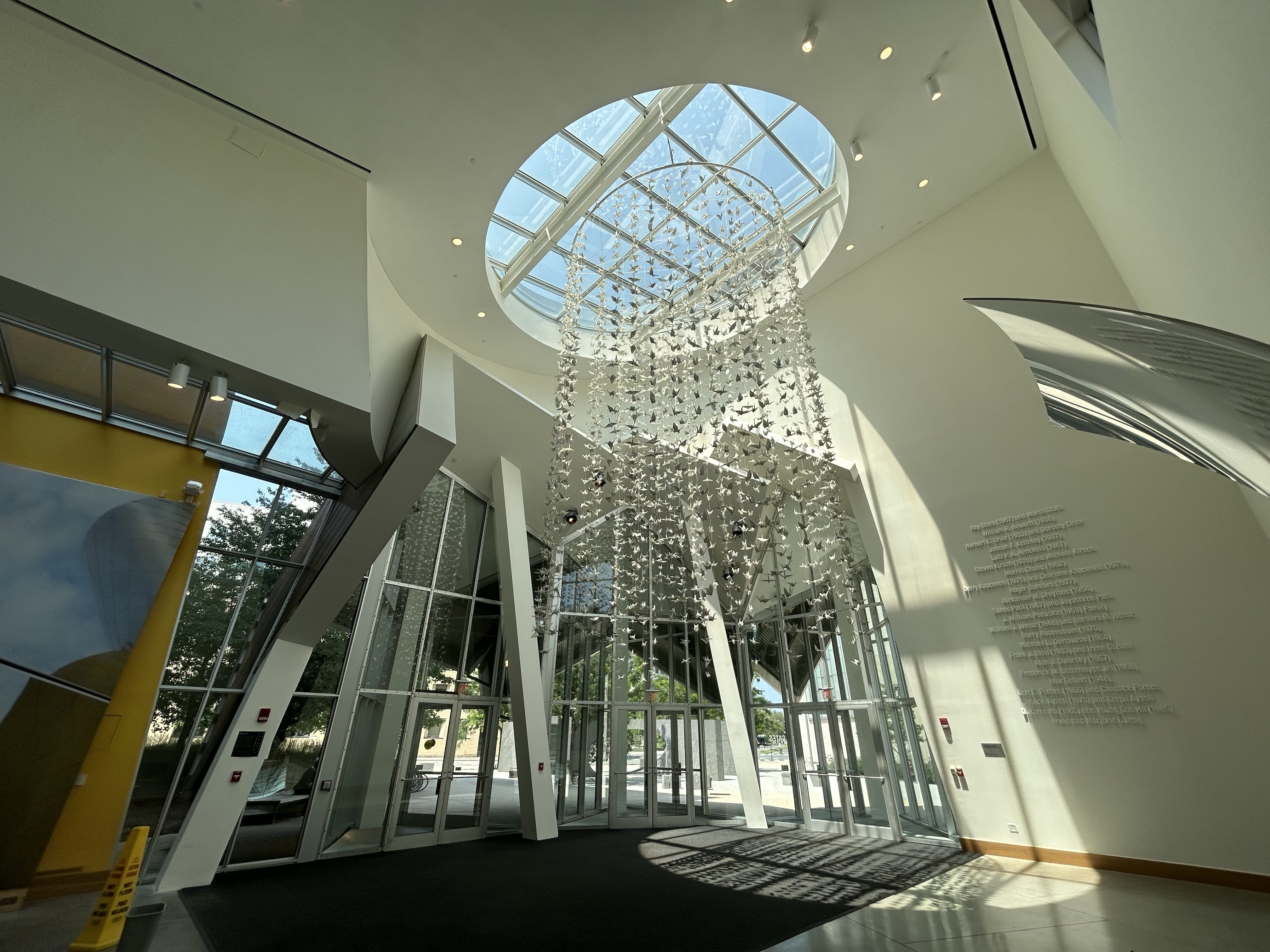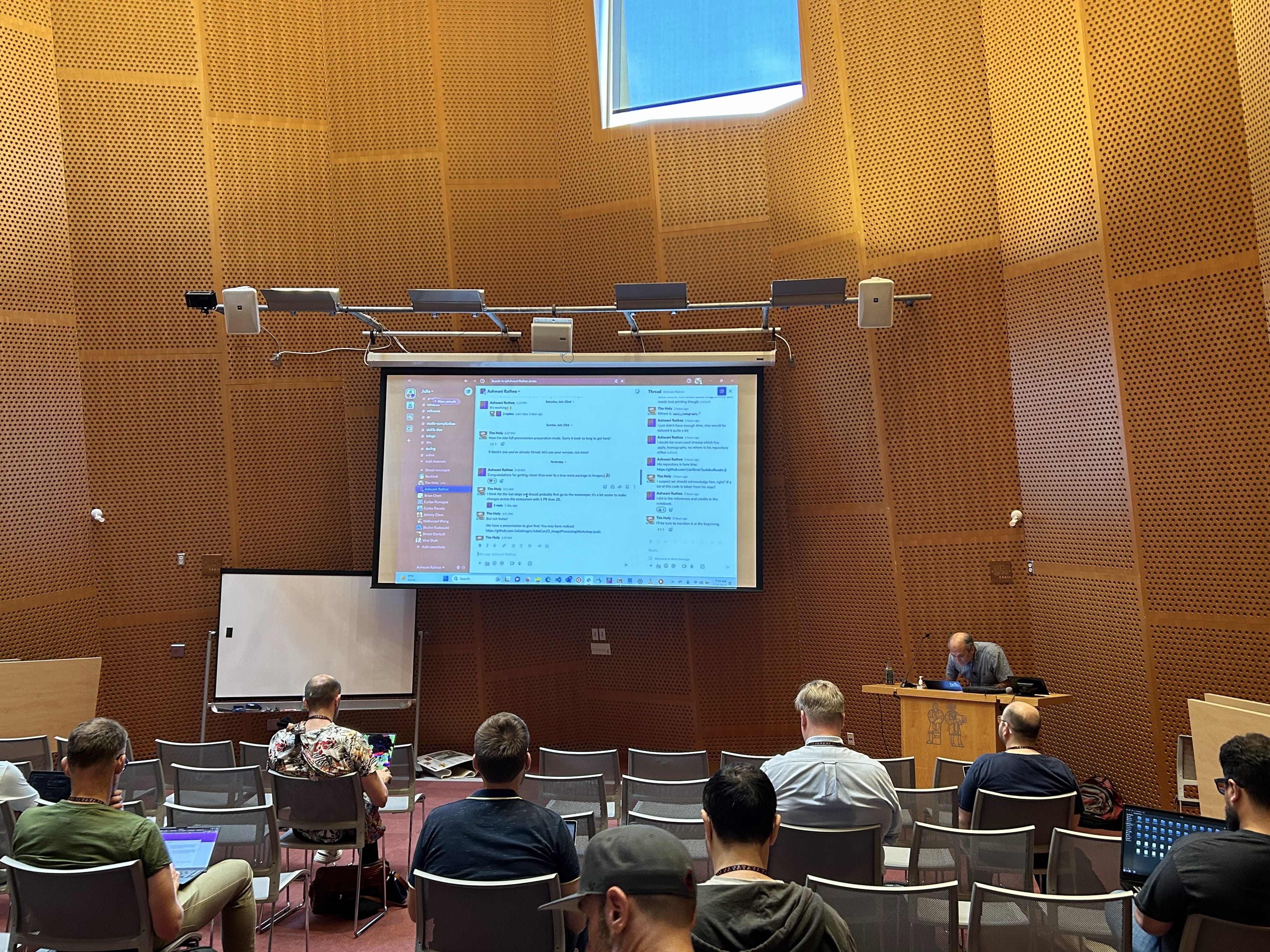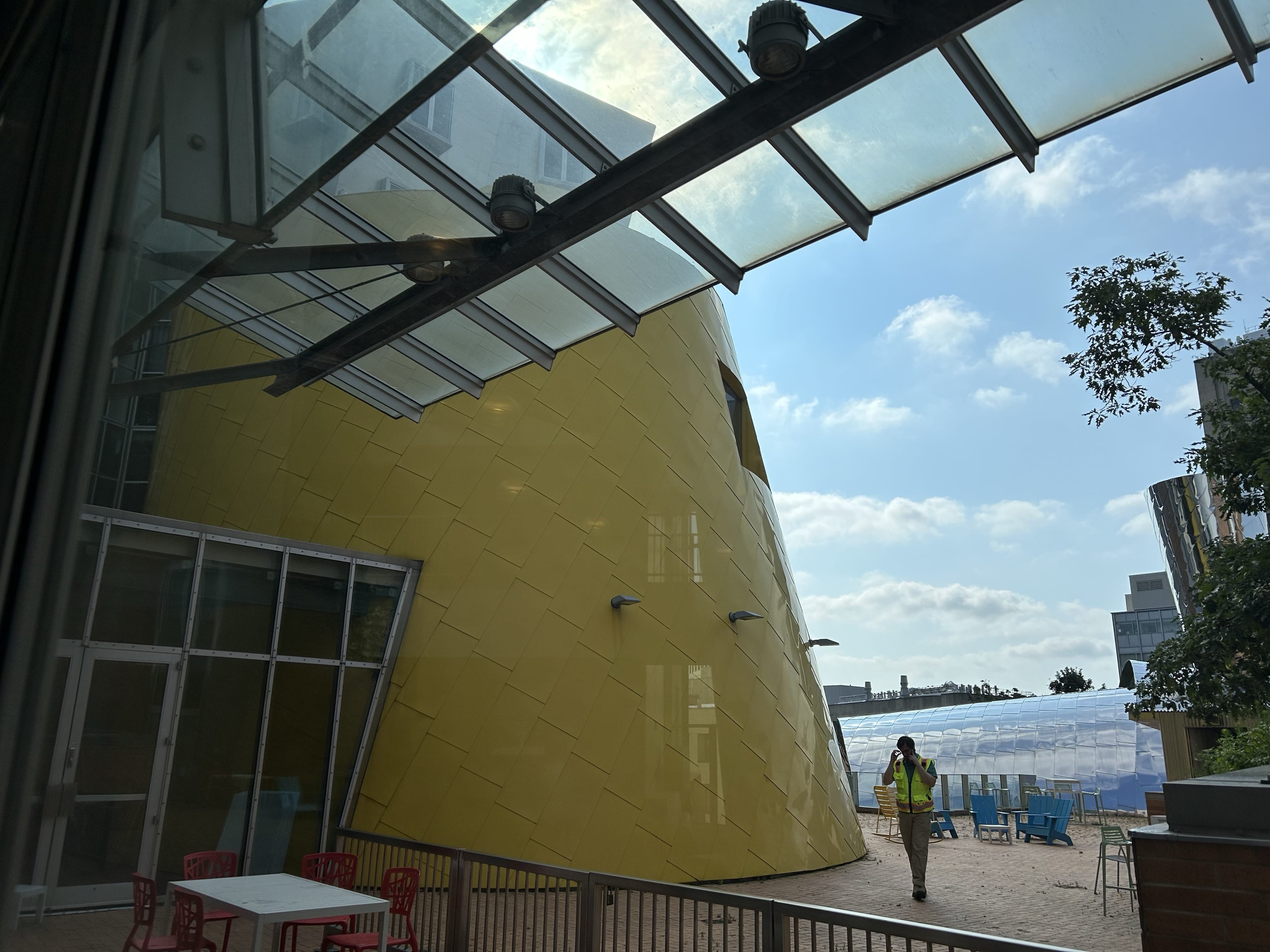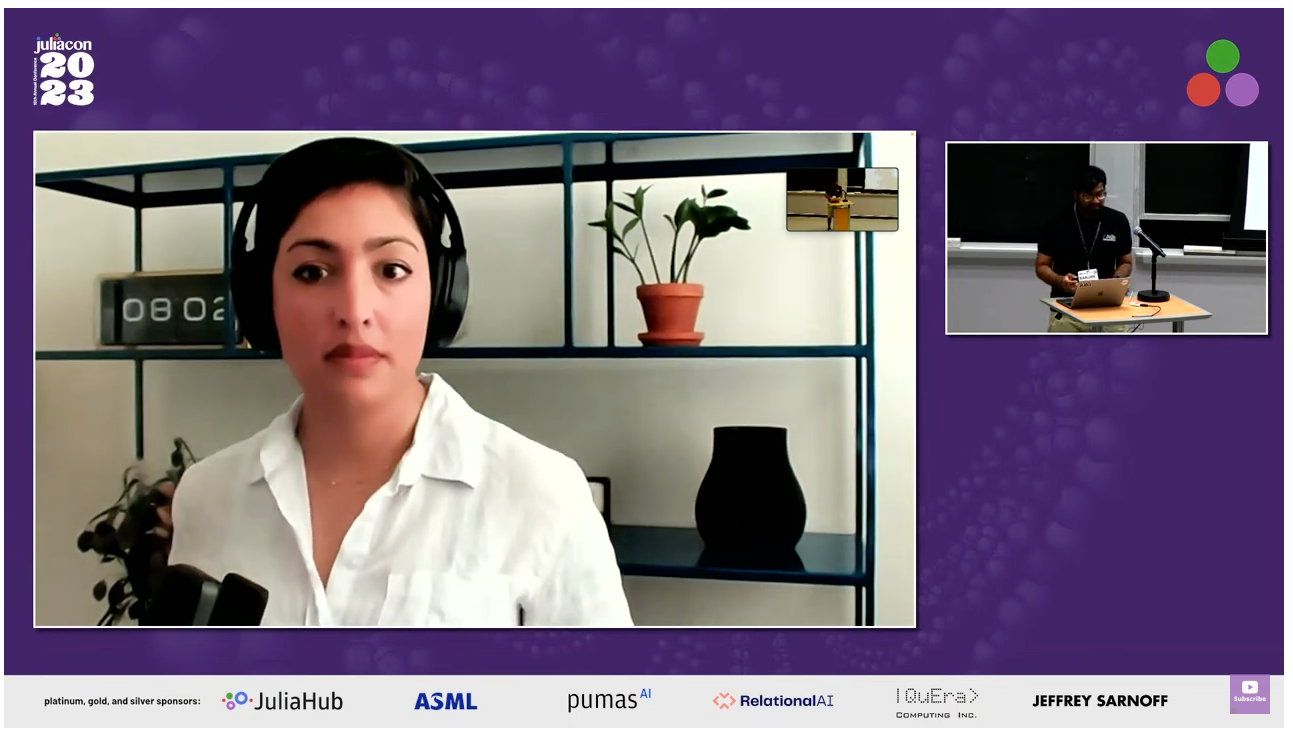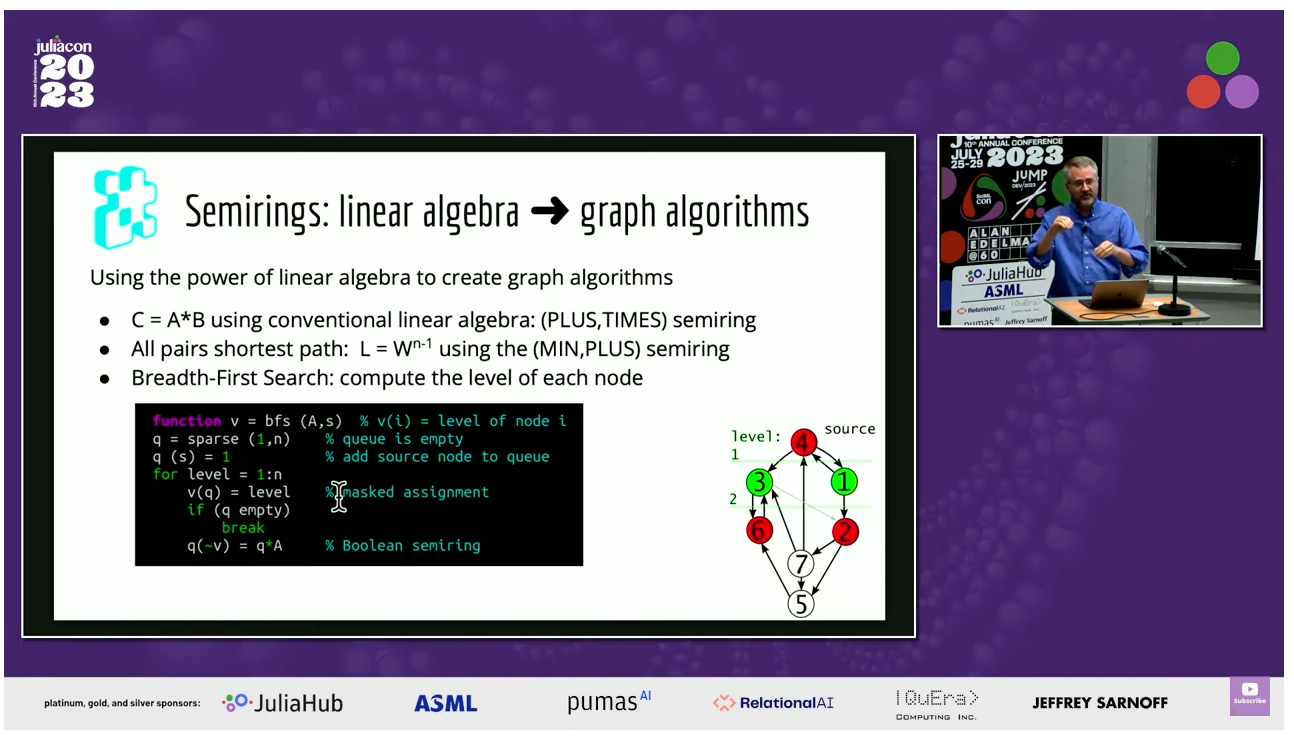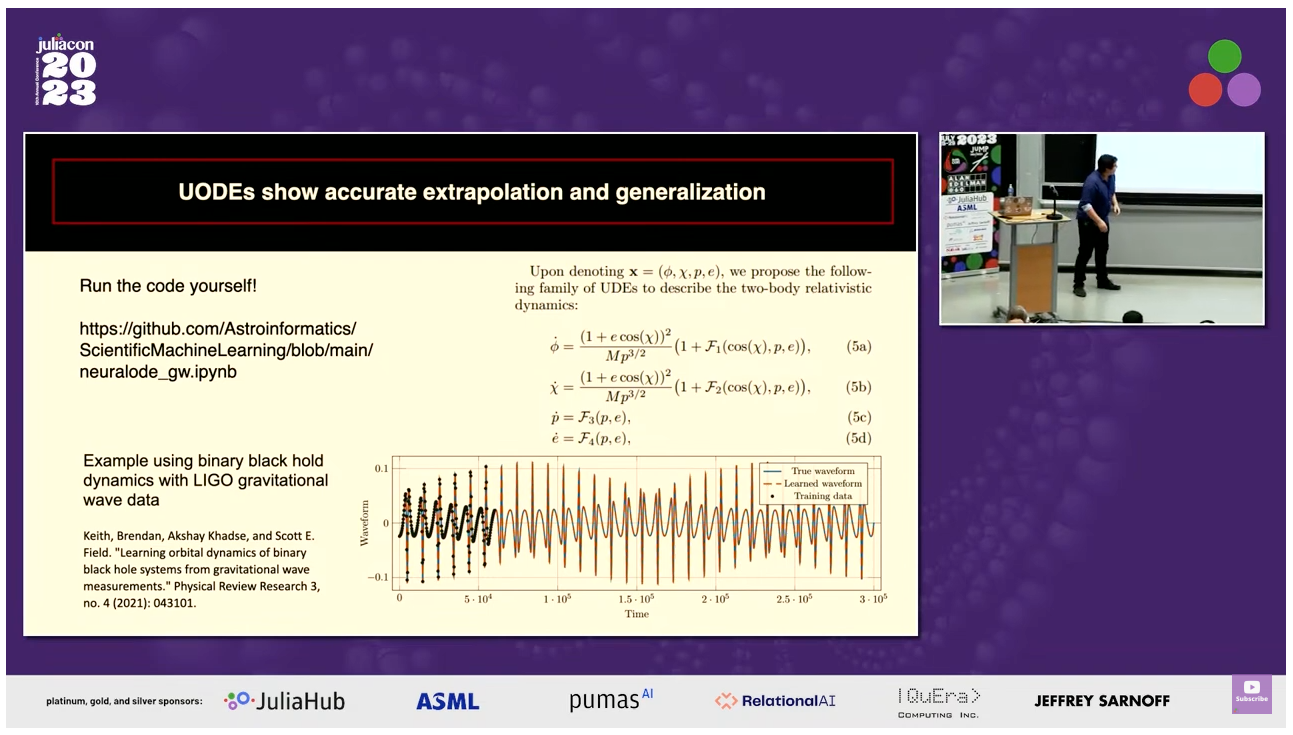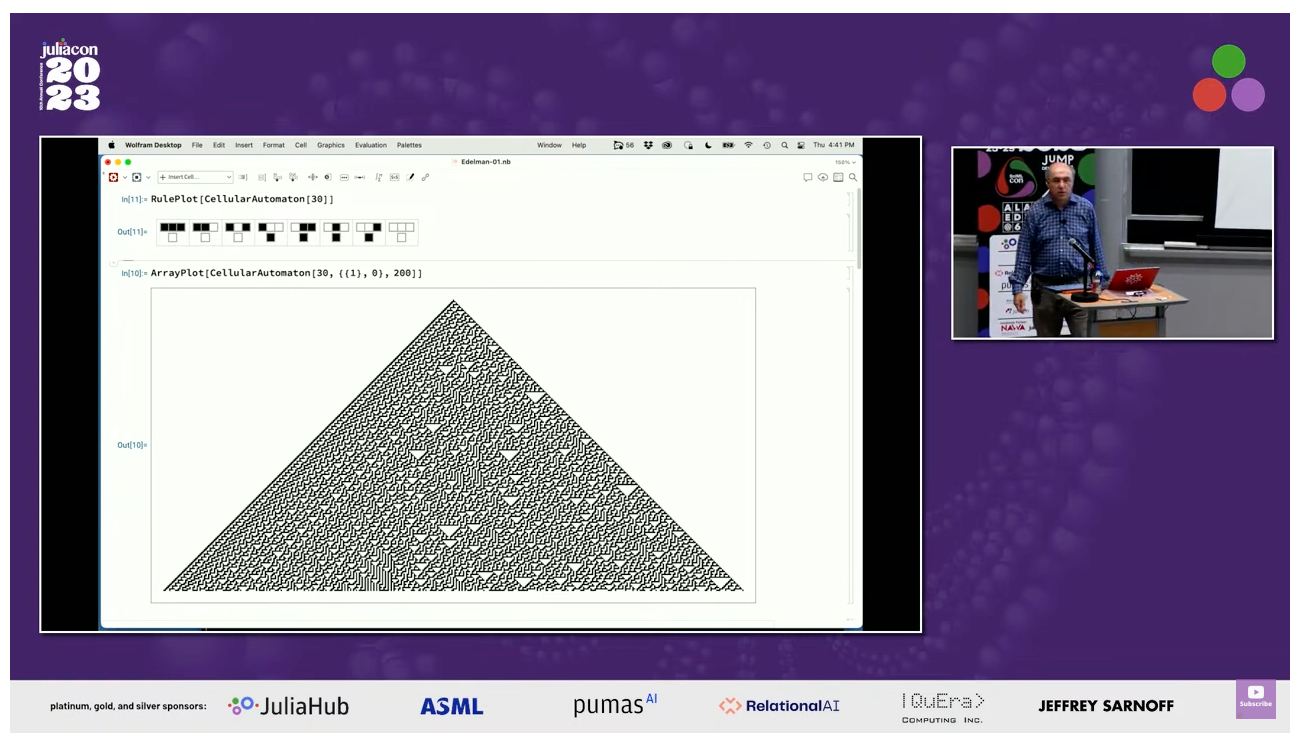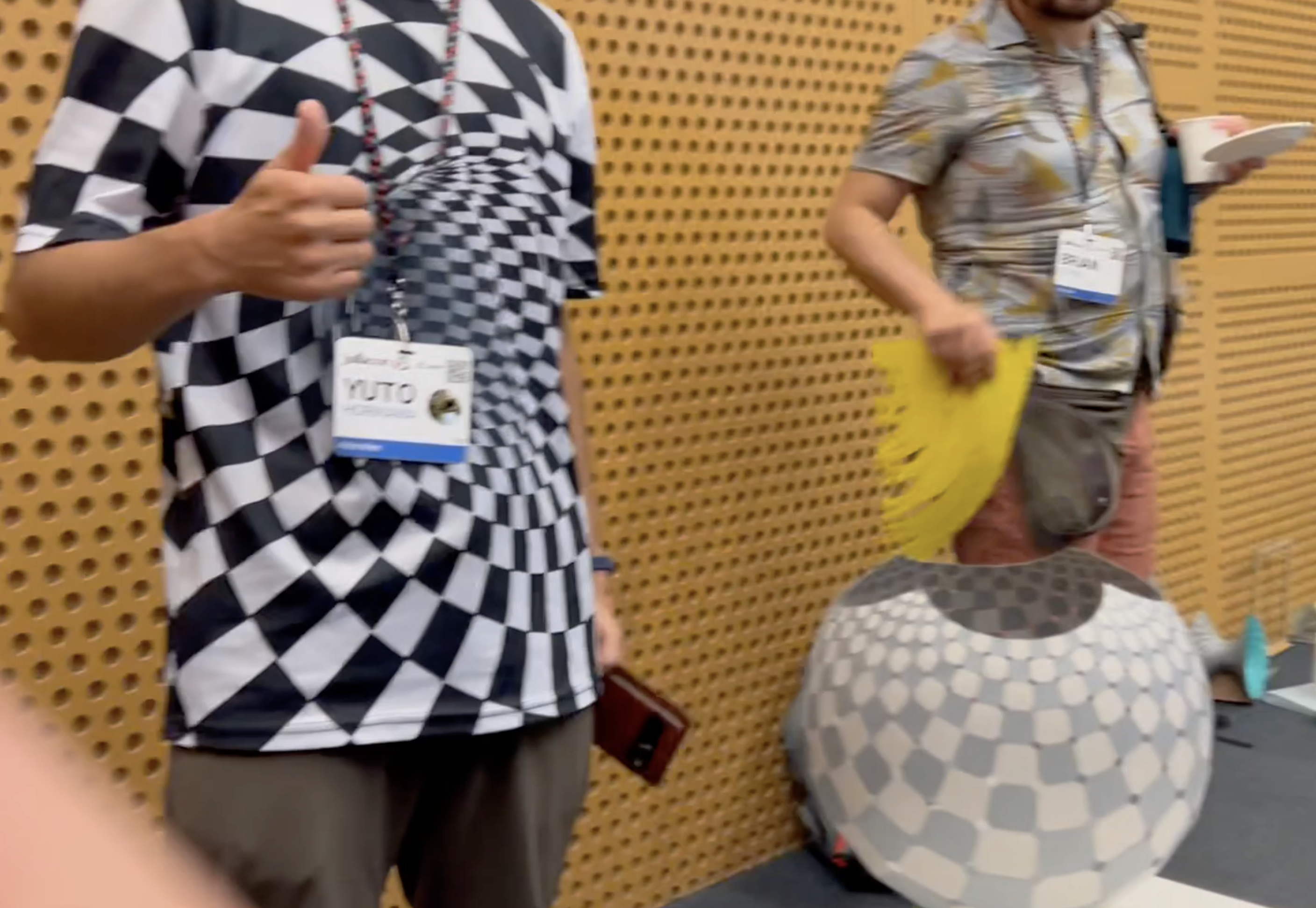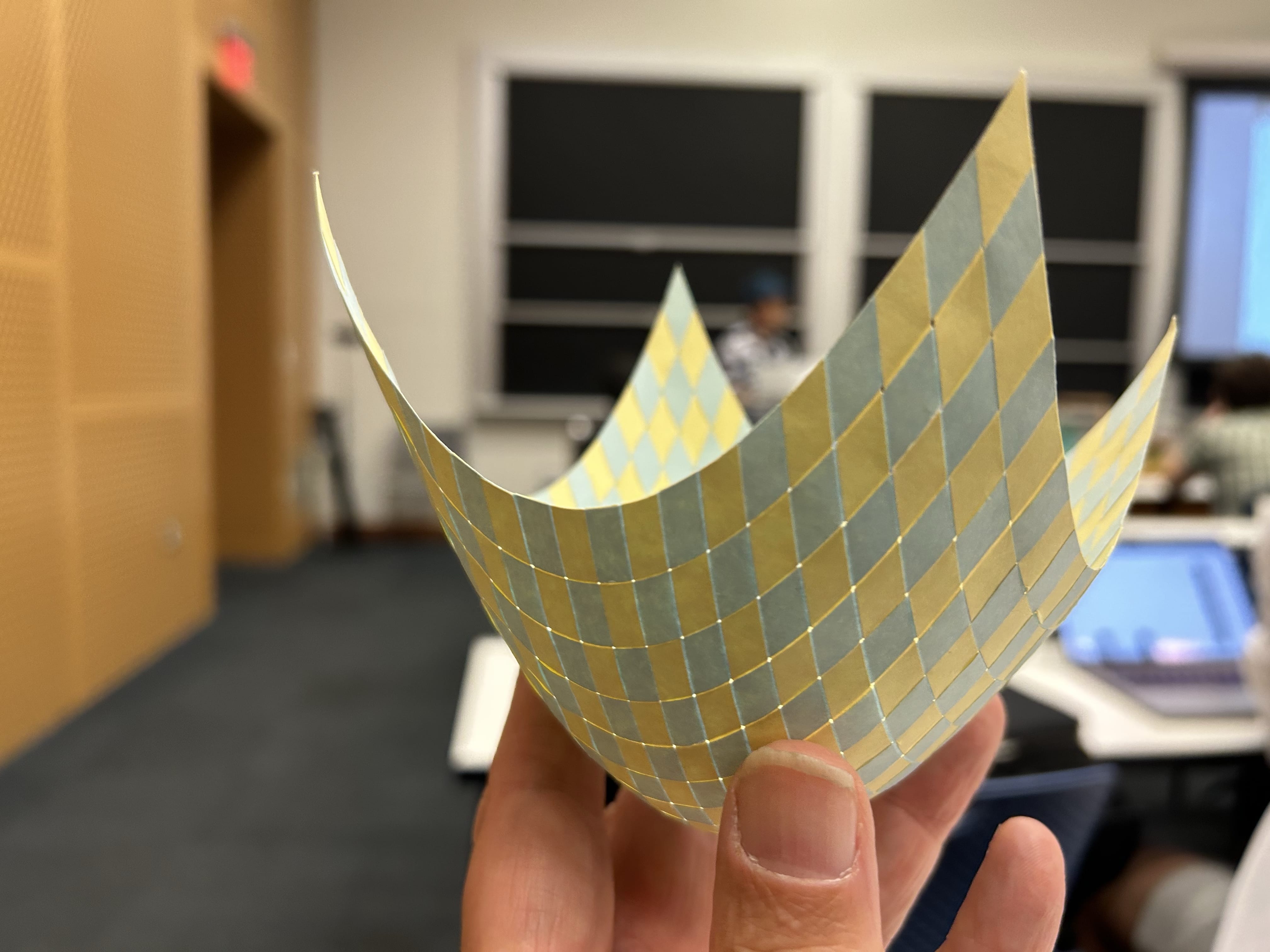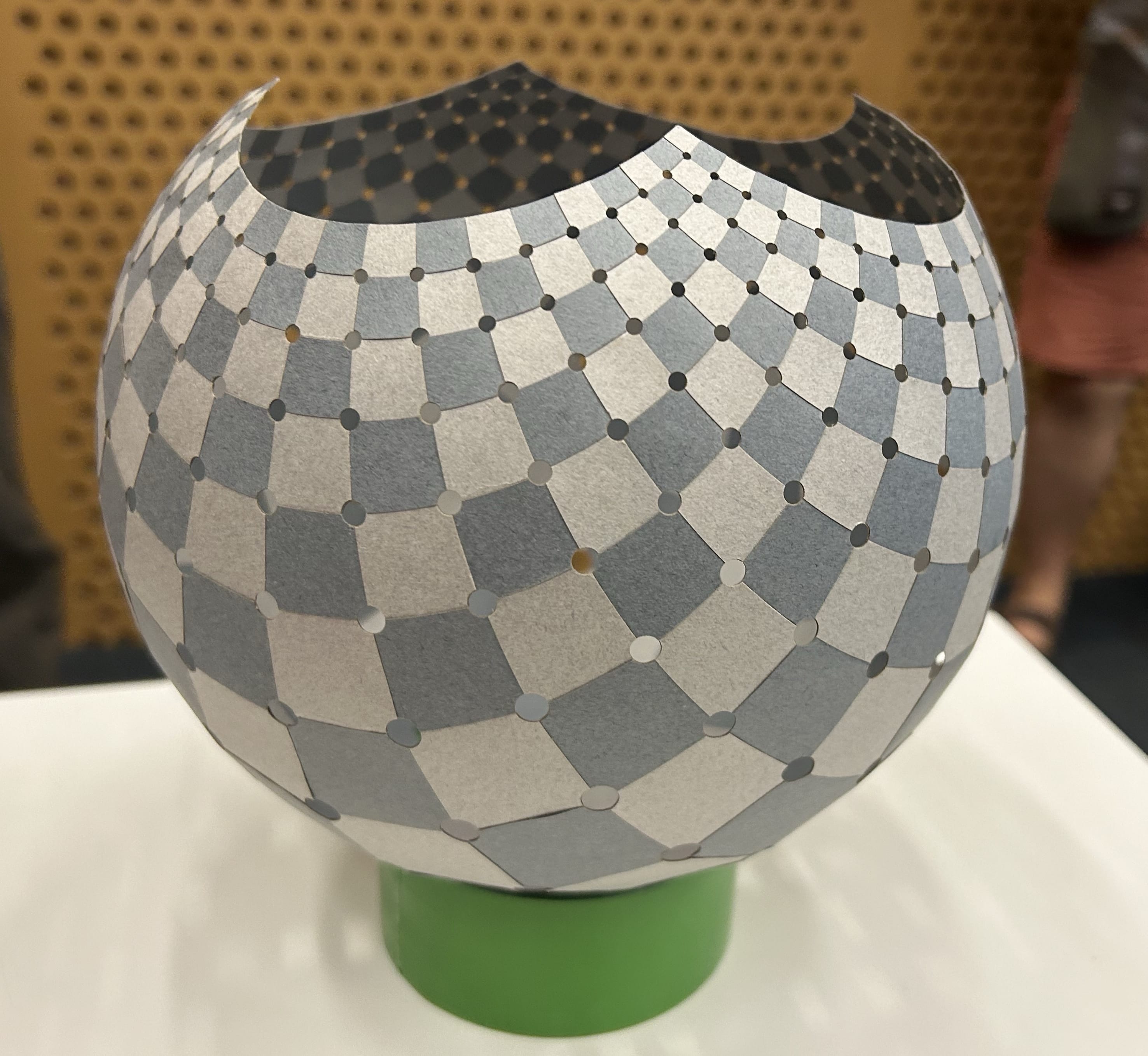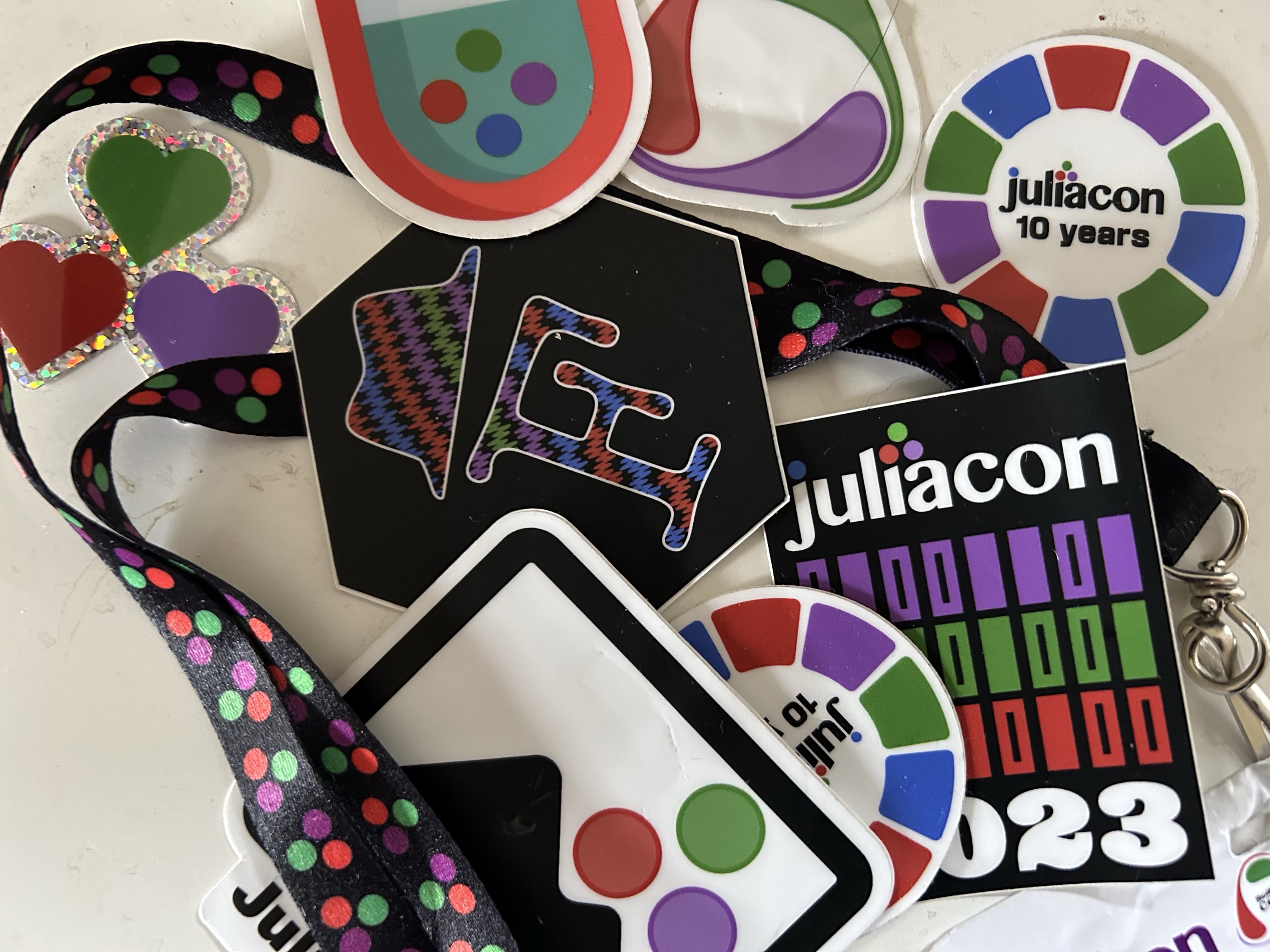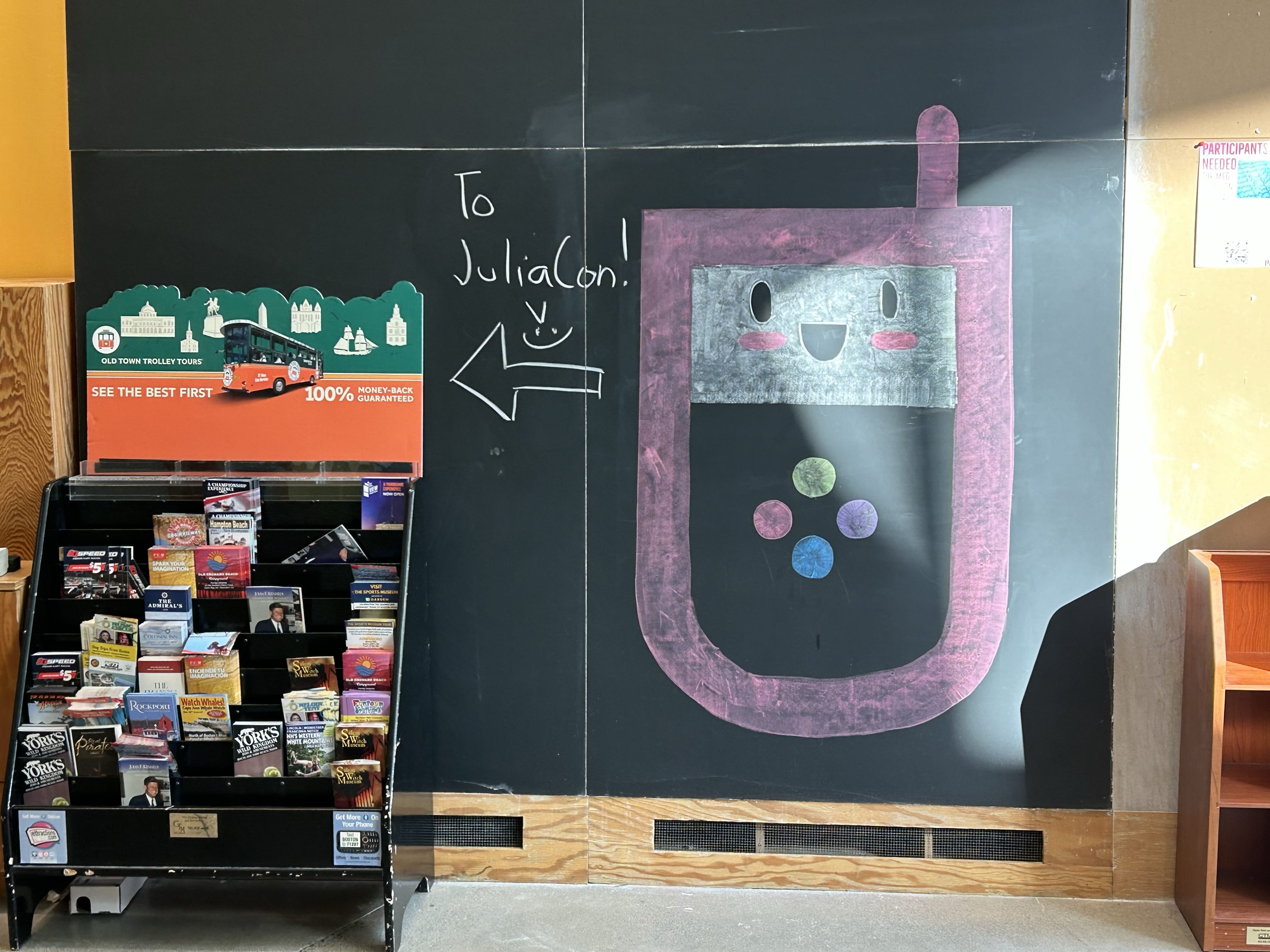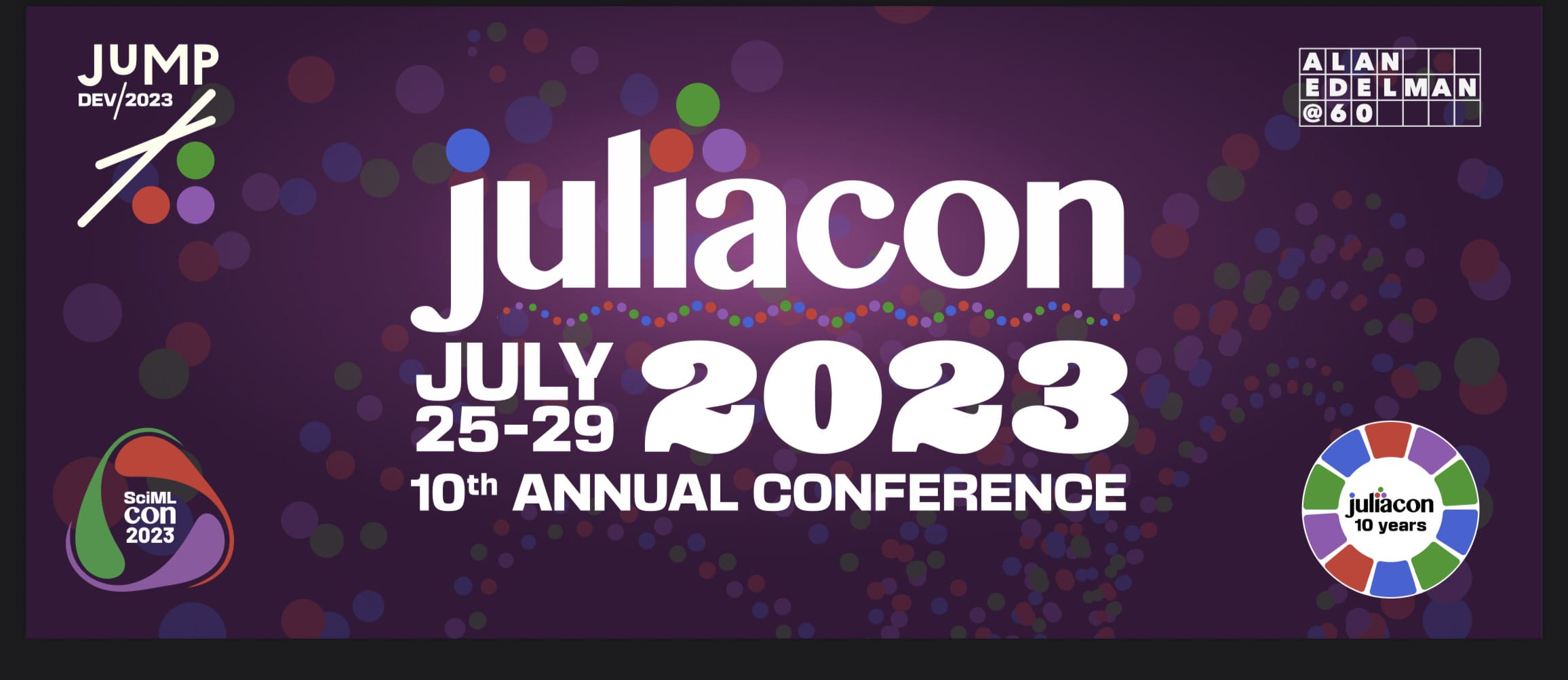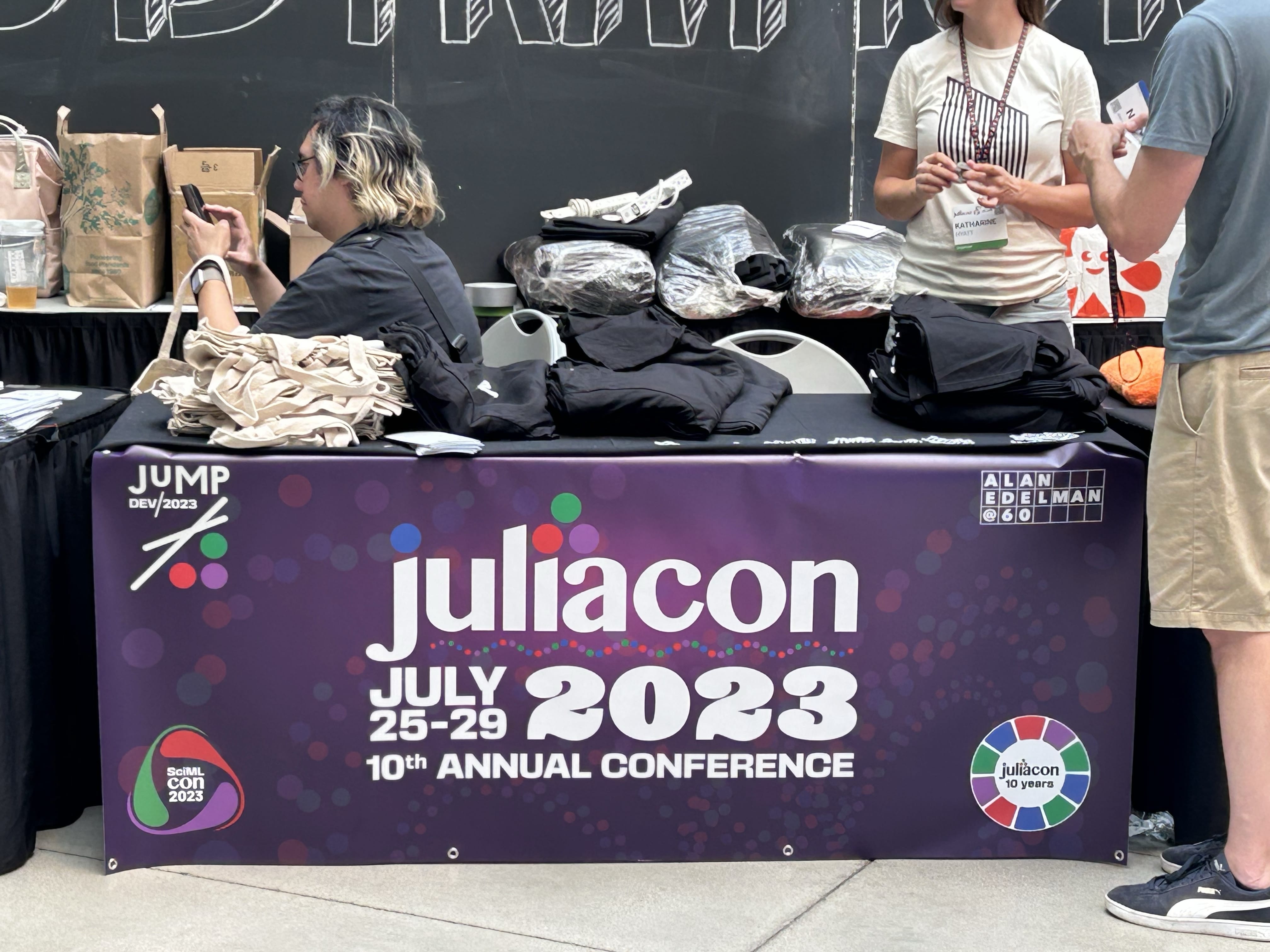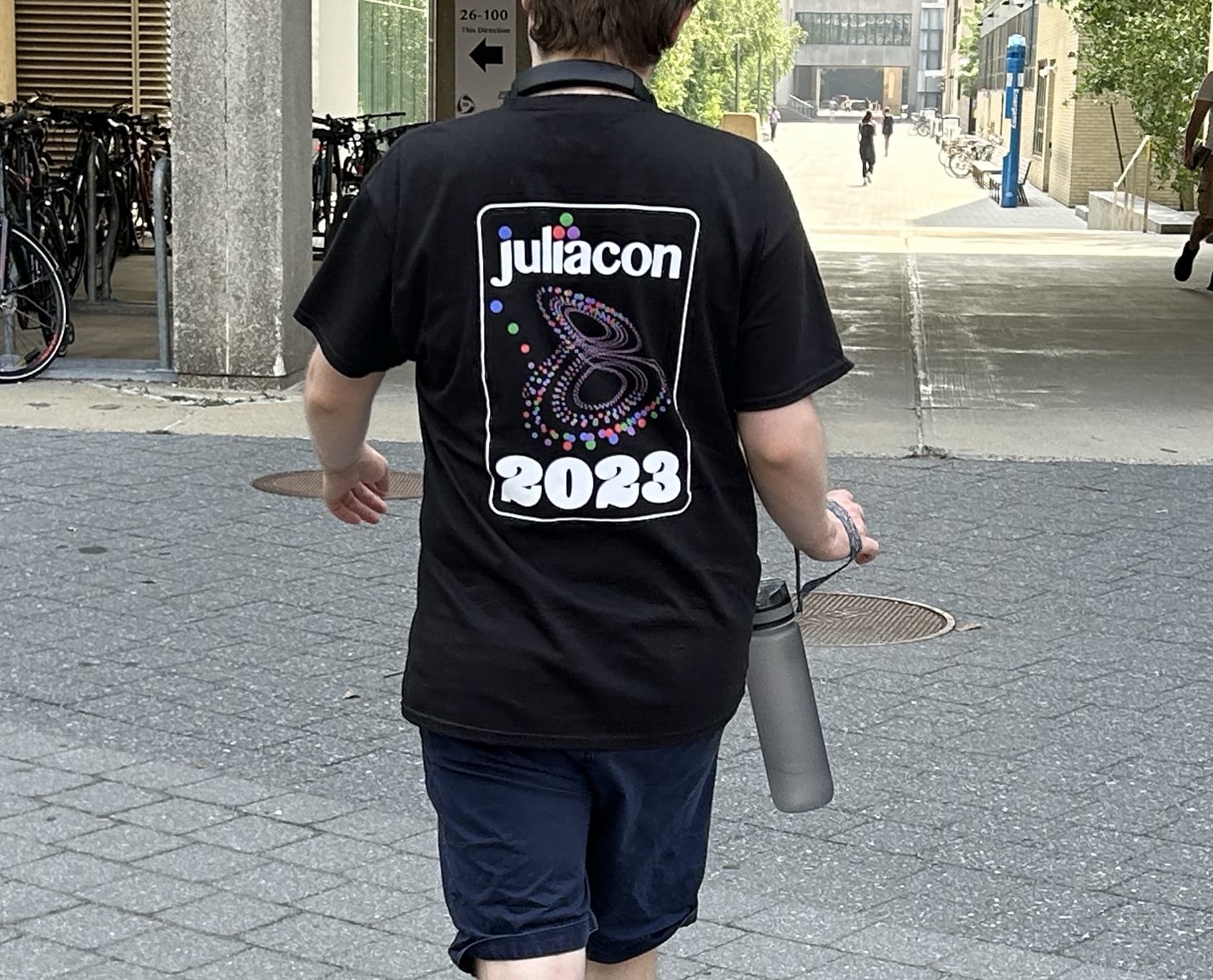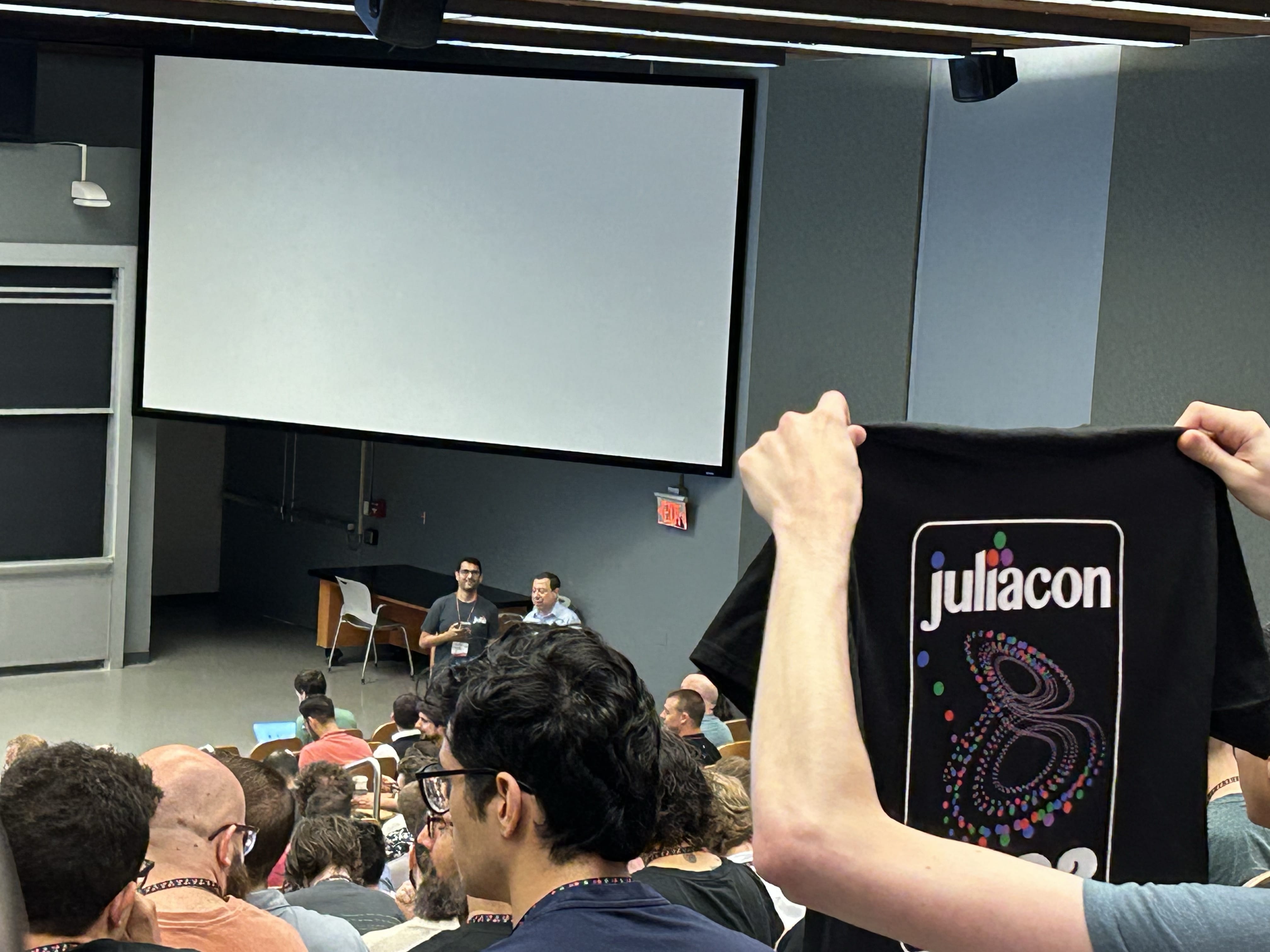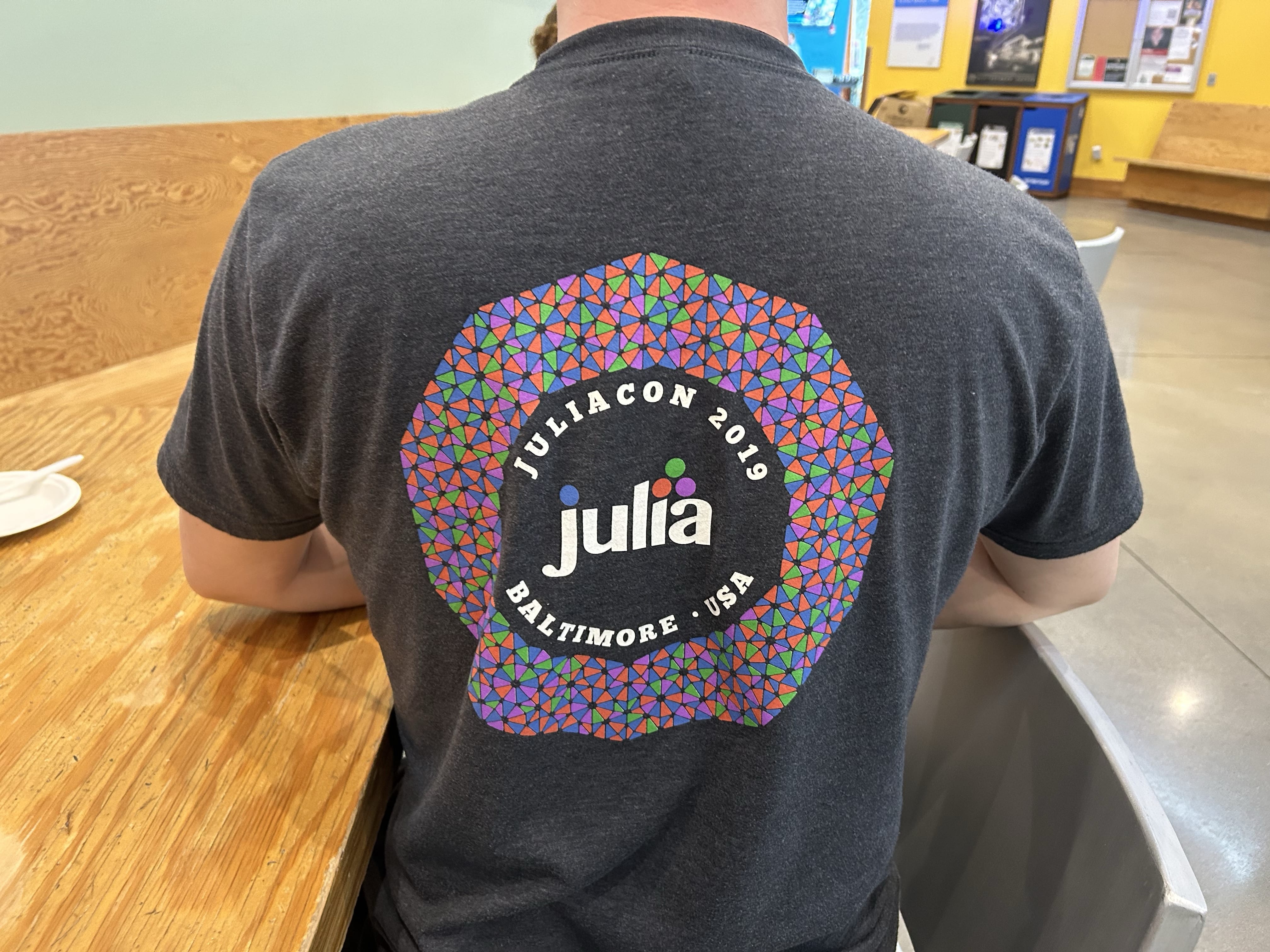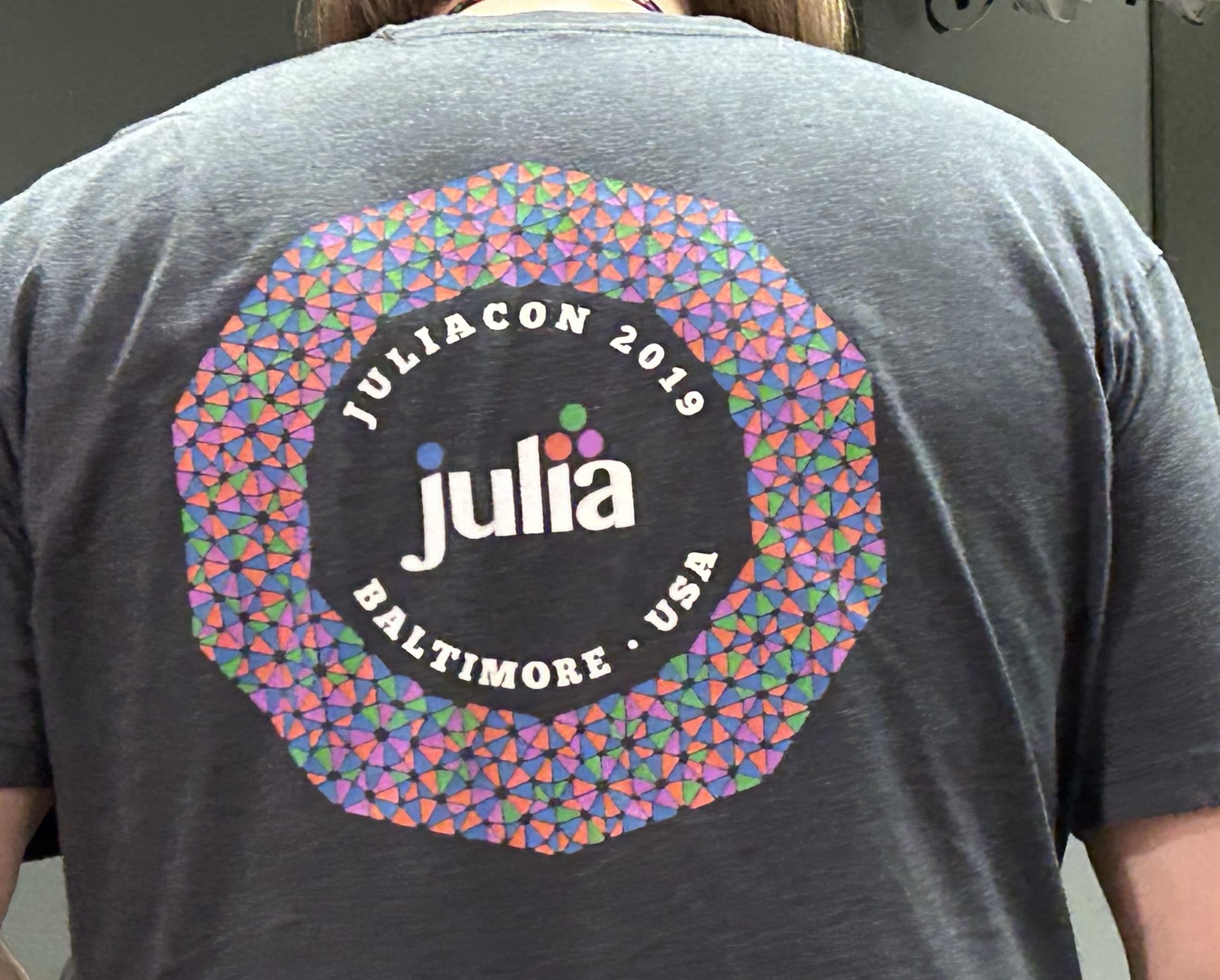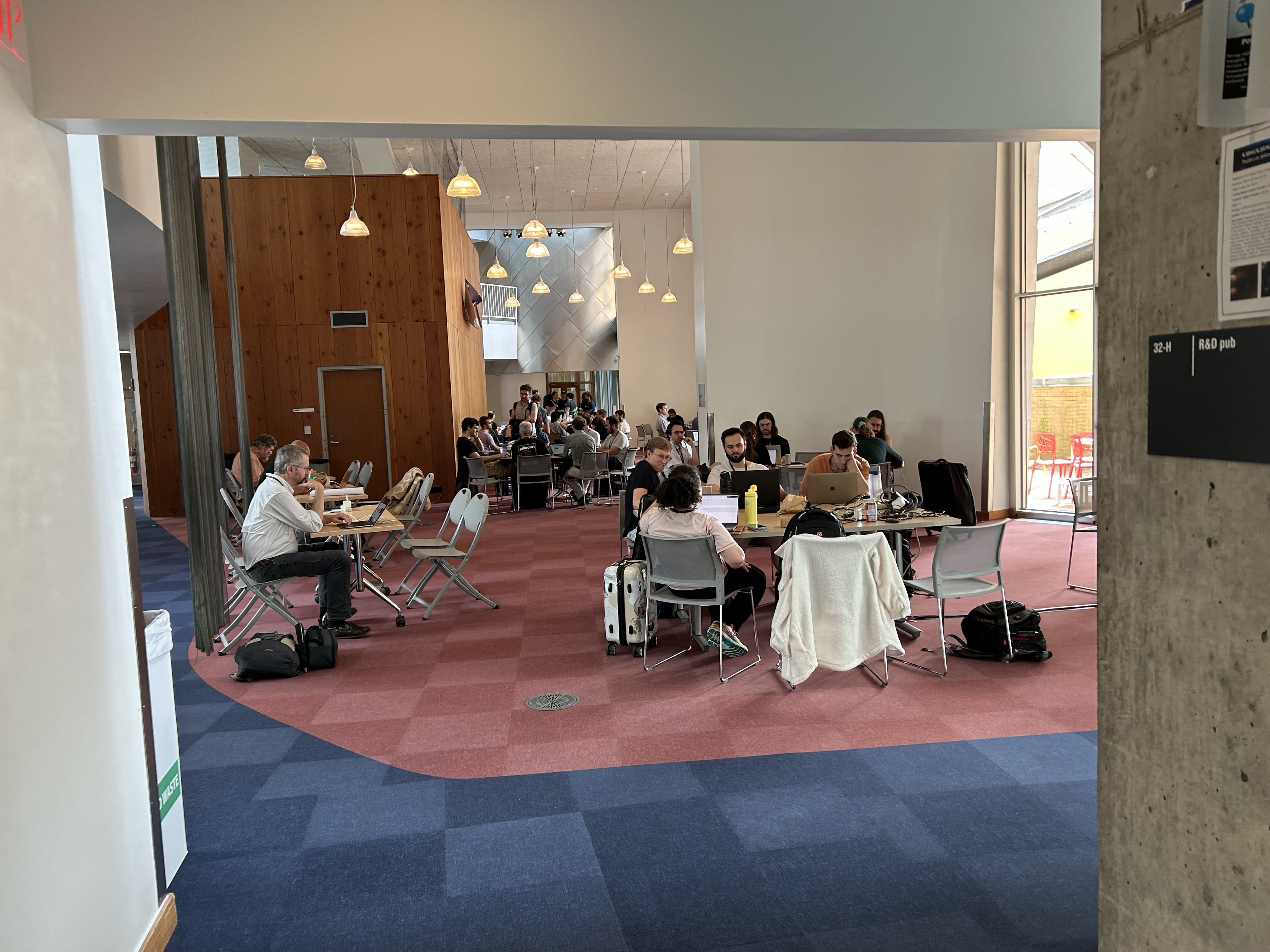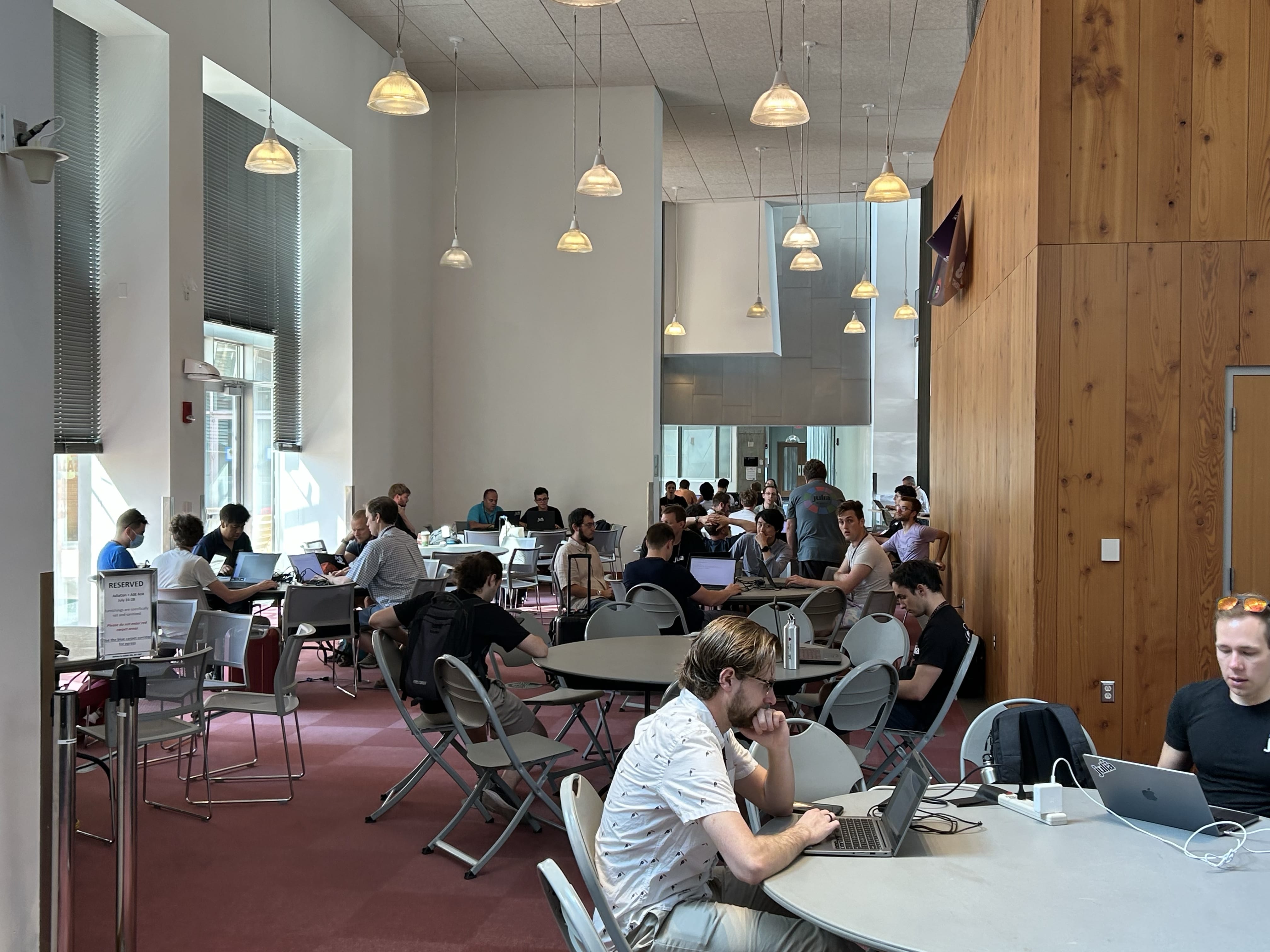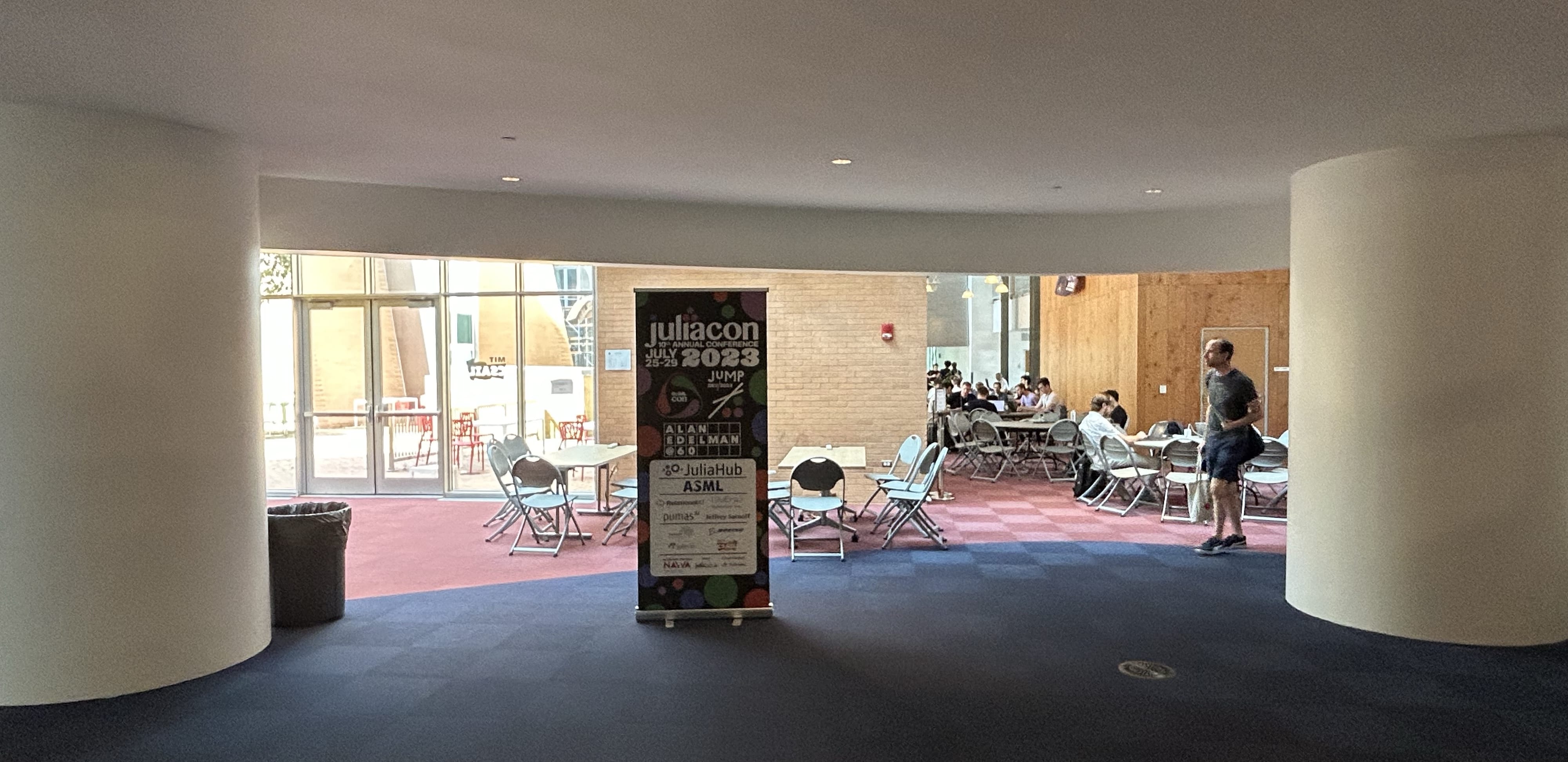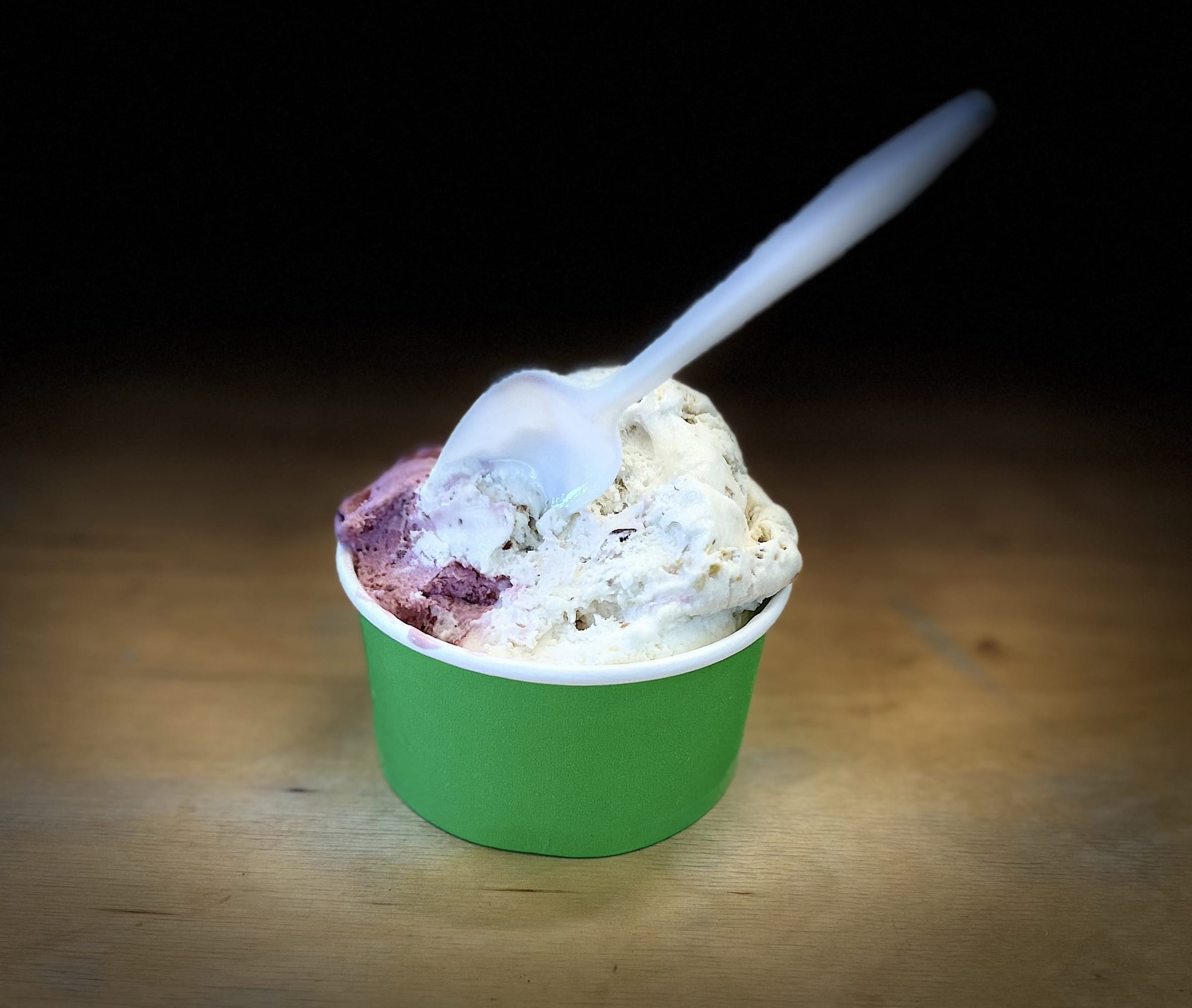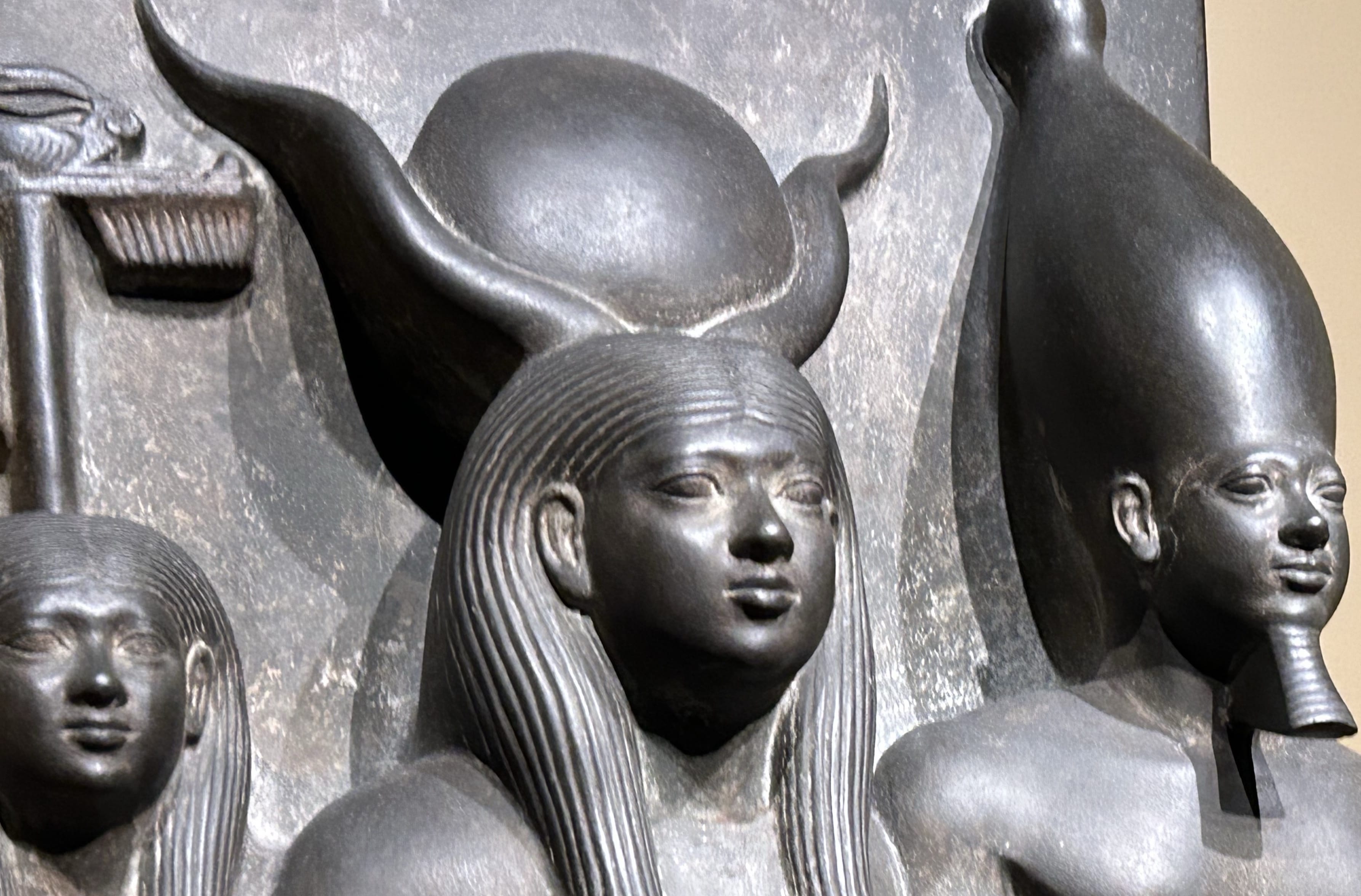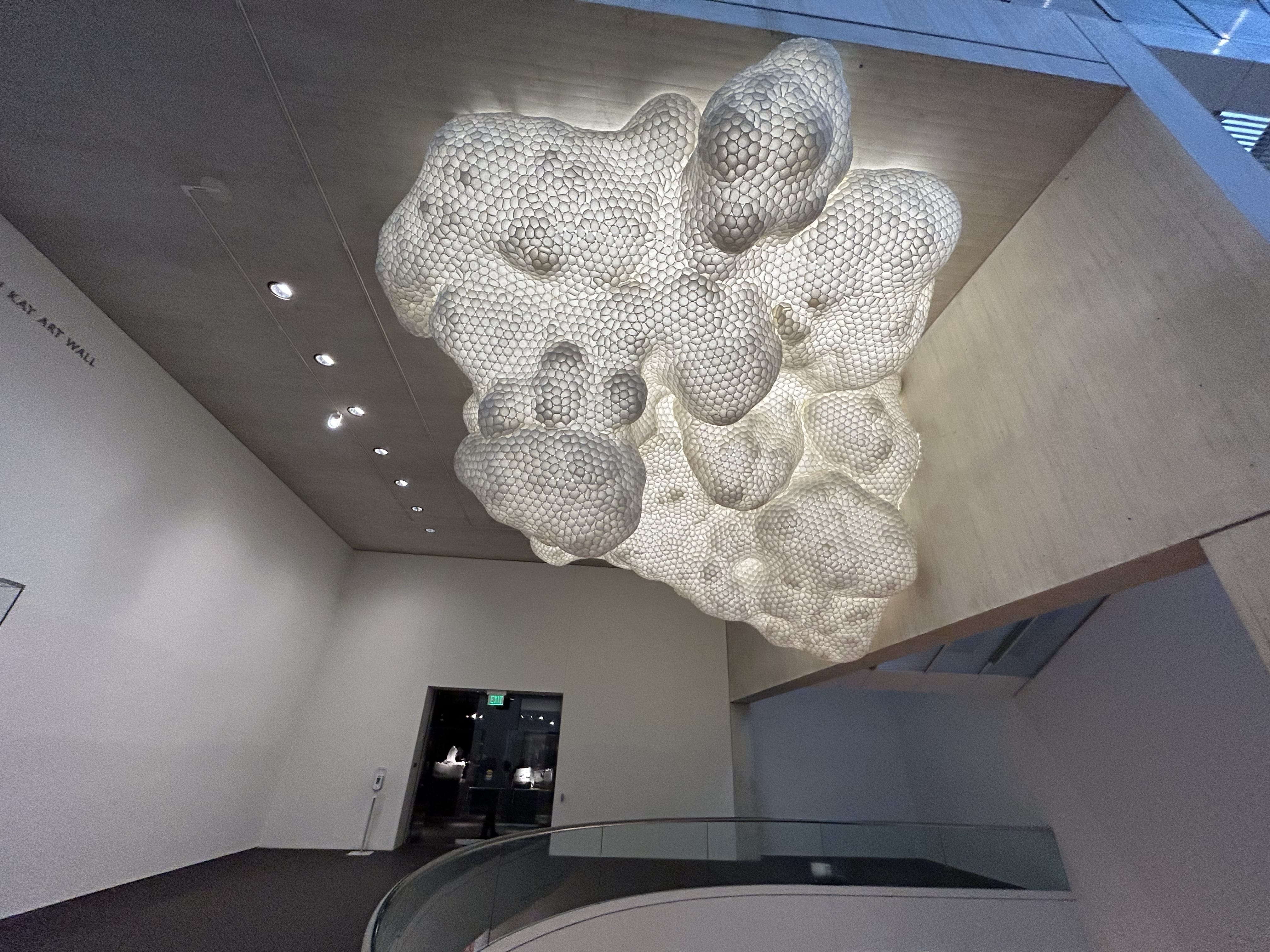This post consists of a few notes about my trip to Boston for juliacon2023
juliacon2023
After landing at Boston's Logan Airport, I spent some time in immigration. I was briefly questioned and finger-printed, which I found surprising – even coming from the UK, which is a frequent runner-up in any Surveillance State of the Year competitions.
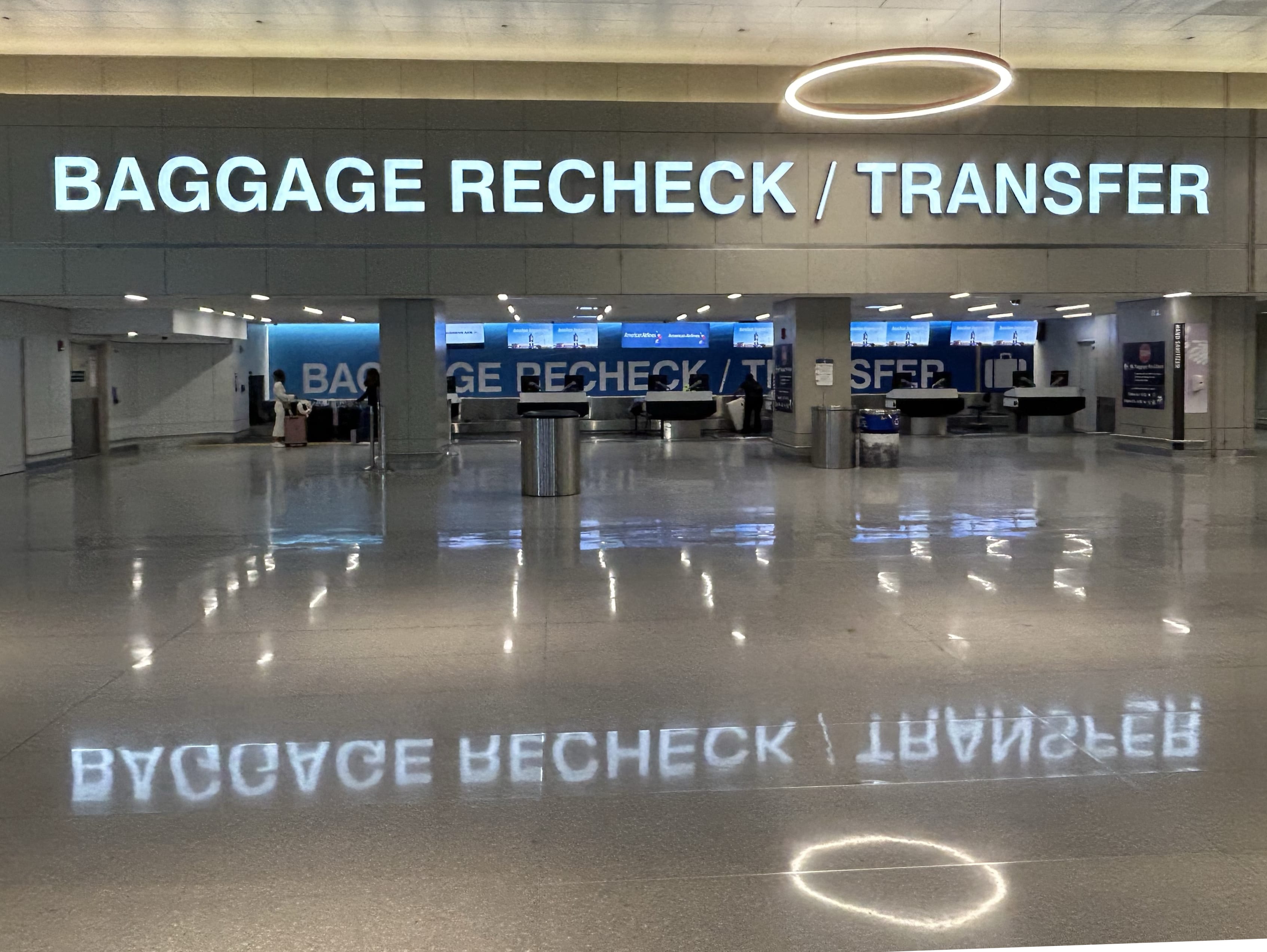
Suitably warned, I abandoned my plans for the bank heist, and went in search of a Charlie Card.
Travel
The Charlie Card gives you unlimited travel on Boston's public transport, and jumping on and off the variously coloured subway trains was fun and very easy.
Quite a few lines were free to travel, in any case. The Boston subway was fascinating, not at all swish and modern like I was expecting, but more of a historical experience, and I loved the sound and motion of the cars as they squealed and wobbled around the tight curves, a great contrast to the slick geometric modernism of the architecture above.
Heat
Boston was hot! I suppose the temperatures this week were normal for Boston at this time of year. On Thursday, Boston Mayor Michelle Wu declared a heat emergency for the city:
Going from inside to outside, the temperature more or less doubled, from 16°C to 32°C. I'm glad I brought plenty of changes of clothing. The subway stations and tunnels were extremely hot, but as soon as you got on the trains, the air conditioning started to cool you down again.
Hotel
Unfortunately, I wasn’t able to stay in the official conference hotel, the Hyatt, because it was fully booked, but I found a room in the CitizenM Boston hotel, just next to the North Station (on the Green line). This is a branch of the Dutch hotel chain, and it’s quite fun. Each room’s facilities, lights, curtains etc, are controlled by an iPad by the bed. CitizenM try hard to be hip and cool.
Conference venue
The location for the conference was the Ray and Maria Stata Center, 5 minutes' walk from Kendall/MIT subway station, and 5 minutes' walk north of the famous MIT dome by the river.
The building is uniquely memorable, almost indescribable, but here's critic Robert Campbell, architecture columnist for The Boston Globe doing a good job:
the Stata is always going to look unfinished. It also looks as if it's about to collapse. Columns tilt at scary angles. Walls teeter, swerve, and collide in random curves and angles. Materials change wherever you look: brick, mirror-surface steel, brushed aluminum, brightly colored paint, corrugated metal. Everything looks improvised, as if thrown up at the last moment. That's the point. The Stata's appearance is a metaphor for the freedom, daring, and creativity of the research that's supposed to occur inside it."
and for a contrary view, here's mathematician and architectural theorist Nikos Salingaros:
An architecture that reverses structural algorithms so as to create disorder — the same algorithms that in an infinitely more detailed application generate living form—ceases to be architecture. Deconstructivist buildings are the most visible symbols of actual deconstruction. The randomness they embody is the antithesis of nature's organized complexity. Housing a scientific department at a university inside the symbol of its nemesis must be the ultimate irony.
This is the first conference I've ever attended, so I don't know how they usually work, but I thought this one worked really well. The ground floor of the building provided an area with plenty of spaces, big and small, for people to mix, stand, sit, talk, eat, buy and drink coffee, or just walk through, with the various rooms spinning off at the sides, and people could easily make random meetings. Somehow, the natural chaos of a conference, with hundreds of people wandering around from place to place, was easily absorbed and managed by this massive and bizarre building that has presumably seen it all before.
Did people get lost trying to find the right room? Yes, I think some did...! You'd need dozens of signs over multiple floors and in assorted lifts and staircases, and placing and making those alone would be a few days' work for someone. Or else some kind of navigation app on a mobile...
Here's a walk-through of the conference space at about 08:10 in the morning. Yes, I don't think the camera operator has done this before...
Talks and presentations
With 3 or 4 parallel tracks, the only way to see more than a quarter of them live would be to have Hermione Granger's Time Turner from Harry Potter, so the recordings will be the best way to catch them all.
Dr Tim Holy's Image Processing workshop .
Generally, the focus of most of the talks was on the more advanced scientific and technical applications of Julia, both theoretical, and as currently being used in industry. There were fewer offerings in the way of general-purpose computing presentations, but quite a few of the talks were approachable for anyone with a bit of university=level maths or science. And some were useful for all Julia users.
Keynotes
All four Doctors gave interesting keynote presentations:
Dr Rumman Chowdury talked about "Building Responsible AI in the age of Generative AI", via a Zoom call (starting off with some slightly degraded audio), regulation, algorithmic bias, and how open-source communities can help improve AI
Dr Tim "Mr Sparse" Davis gave a lively presentation about GraphBLAS, semi-rings, whatever they are, and matrices. I heard the word "Matlab" a lot too...
Dr Chris Rackauckas talked about putting machine learning modules and neural networks inside differential equations
Dr Stephen Wolfram talked about himself, Mathematica, and the mysteries of the universe. I think he tried to use Julia from a Mathematica notebook at the end, I couldn't really follow it.
Talks
There were lots of cool presentations. Here are just a few that I enjoyed:
Writing a Julia Data Science Book, Jose Storopoli
Using Julia to Optimise Trajectories for Robots with Legs , Henrique Ferrolho
Making a Release - Kristoffer Carlson’s presentation, including his comment “The best feeling after making a new release is if it’s completely quiet and there’s nothing happening, means that everything went well”
Sound Synthesis with Julia , Ahan Sengupta (I'm looking forward to using this package)
I also went to a talk at Alan Edelman's 60th Birthday symposium, entitled Graphs, matrices, and programming: There and back again by John Gilbert
Hypersonic jets at Hermeus, Corbin Klett
Fuzzy Logic , Luca Ferranti
Creating smooth surface models with ElasticSurfaceEmbedding.jl, Yuto Horikawa (@Hyrodium), who also showed us his paper models of surfaces built after calculating the strips of paper required:
And Yuto very kindly gave me one of his working visiting cards - I attempted to animate it to show how cool it is:
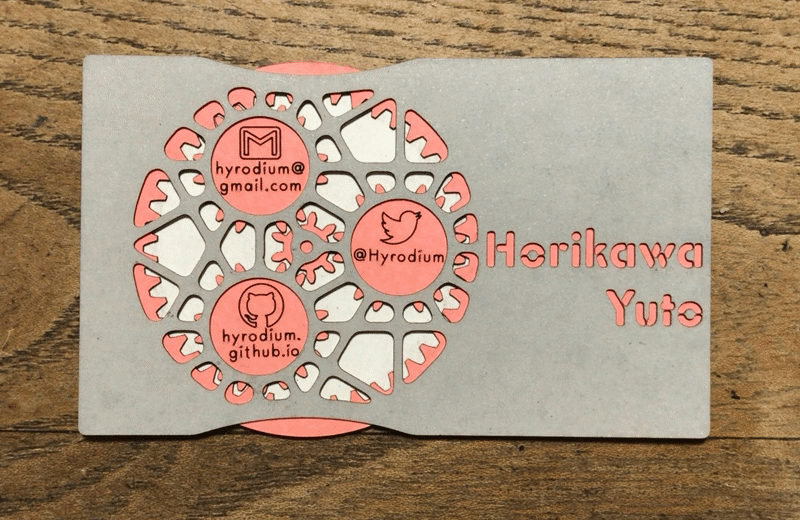
Graphics and merch
Raye and Ranjan, together with the rest of the organization team, did a amazing job with the organization, and all the graphics and merchandizing, the lanyards, and 1000s of stickers.
The original idea for the theme was to use an image of the distinctive building itself.
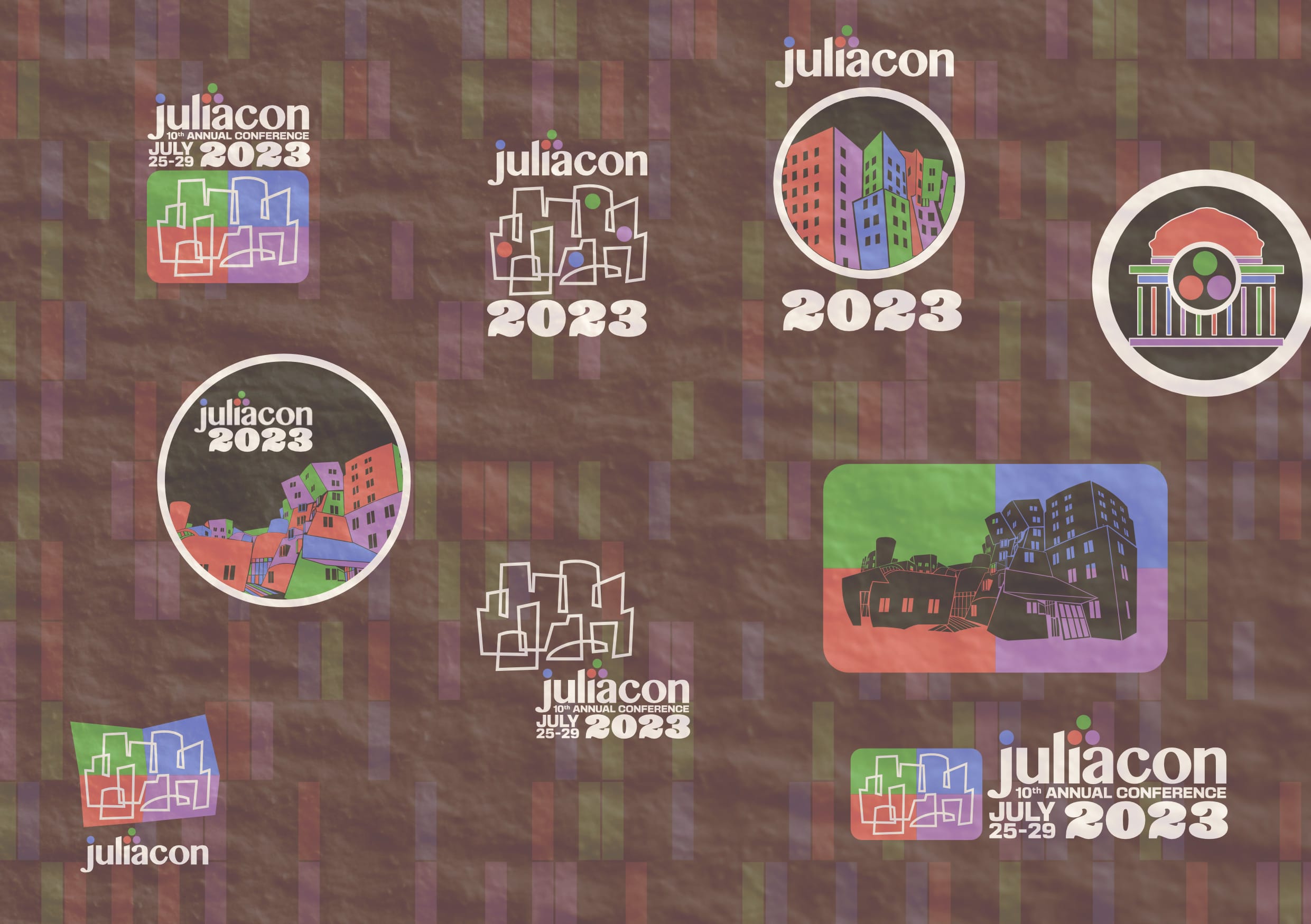
But I think the MIT people were uneasy about us playing with their imagery like this (institutions usually hate seeing their logos mangled by third parties), so at the last minute we chose a familiar scientific image (associated with another MIT alumnus), made with some simple Julia code (vertices generated by DynamicalSystems.jl from George Datseris and colleagues).
using DynamicalSystems
ds = Systems.lorenz(σ = 23.8, ρ = 68.1, β = 8 / 3)
ts = trajectory(ds, 40.0, Δt = 0.008)It was great to see some designs from previous JuliaCons still surviving the washing machine:
I met...
I was able to shake hands and personally thank Stefan, Viral, and Jeff for creating this whole Julia thing and for building the community. (I think Alan was blowing out candles on his 60th birthday cake.) So that's a few items on the bucket list completed!
It was also great to meet Jeffery, JiaHao (+ tank), Oscar, Raye, Ranjan, Carsten, Luca, Miguel, Jacob, Jakob, Matt, Mosè, Georg, Tim, Julius, Kristoffer, Avik, Anant, Ian, Kevin, Steve, Scott, and others! I even said "Hi" to one of the Chris Rackauckases too (there are surely more than one). Everyone was really friendly.
Hackathon
On Saturday there was the hackathon. Bring your own coffee!
Sightseeing
I was able to do a tiny bit of sightseeing in Boston before I had to fly back to the UK.
In search of something older than the Boston subway system, I visited the Printing Office of Edes & Gill and talked for 30 minutes with the chap about the typesetting of the Declaration of Independence (the Dunlap broadsides were set in Caslon, with many ligatures). And the Museum of Fine Art, a few stops away on the Green Line, was a cool oasis of Egyptian sculptures, Monets and Van Goghs, and modern art.
Thanks
A special thank-you to Jeffrey Sarnoff, who helped me a lot – and he bought me dinner! He's even more entertaining and generous in person than he is online.
And a big thank-you to the organizers and to everyone who made my trip possible! Thank you very much! We'll meet again.
[2023-08-08]

